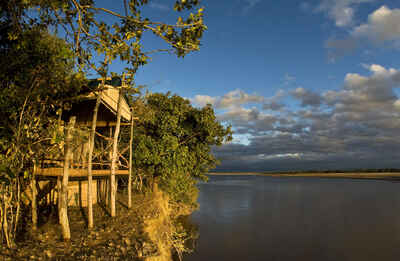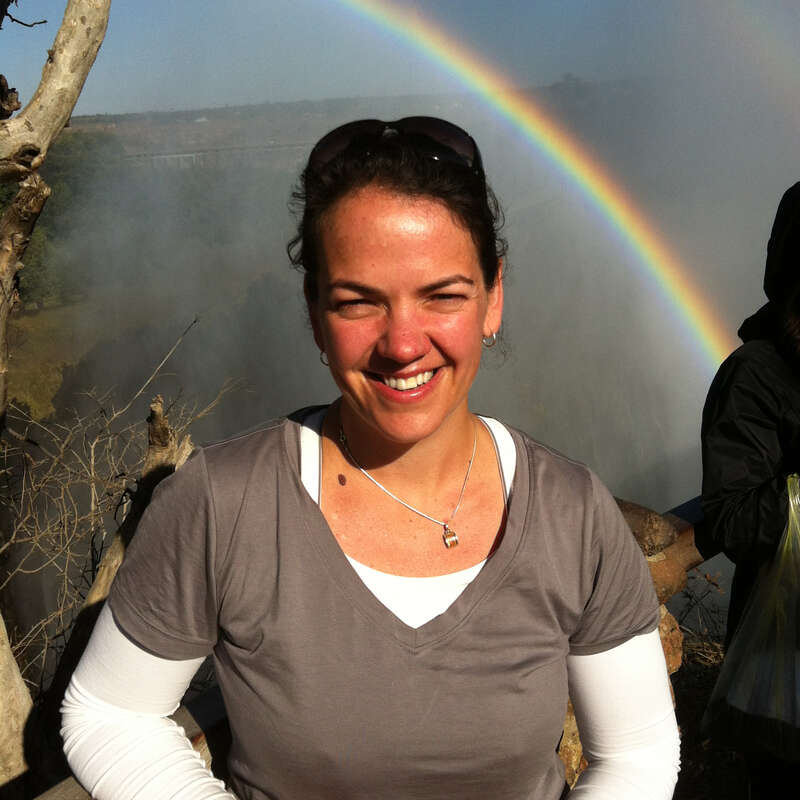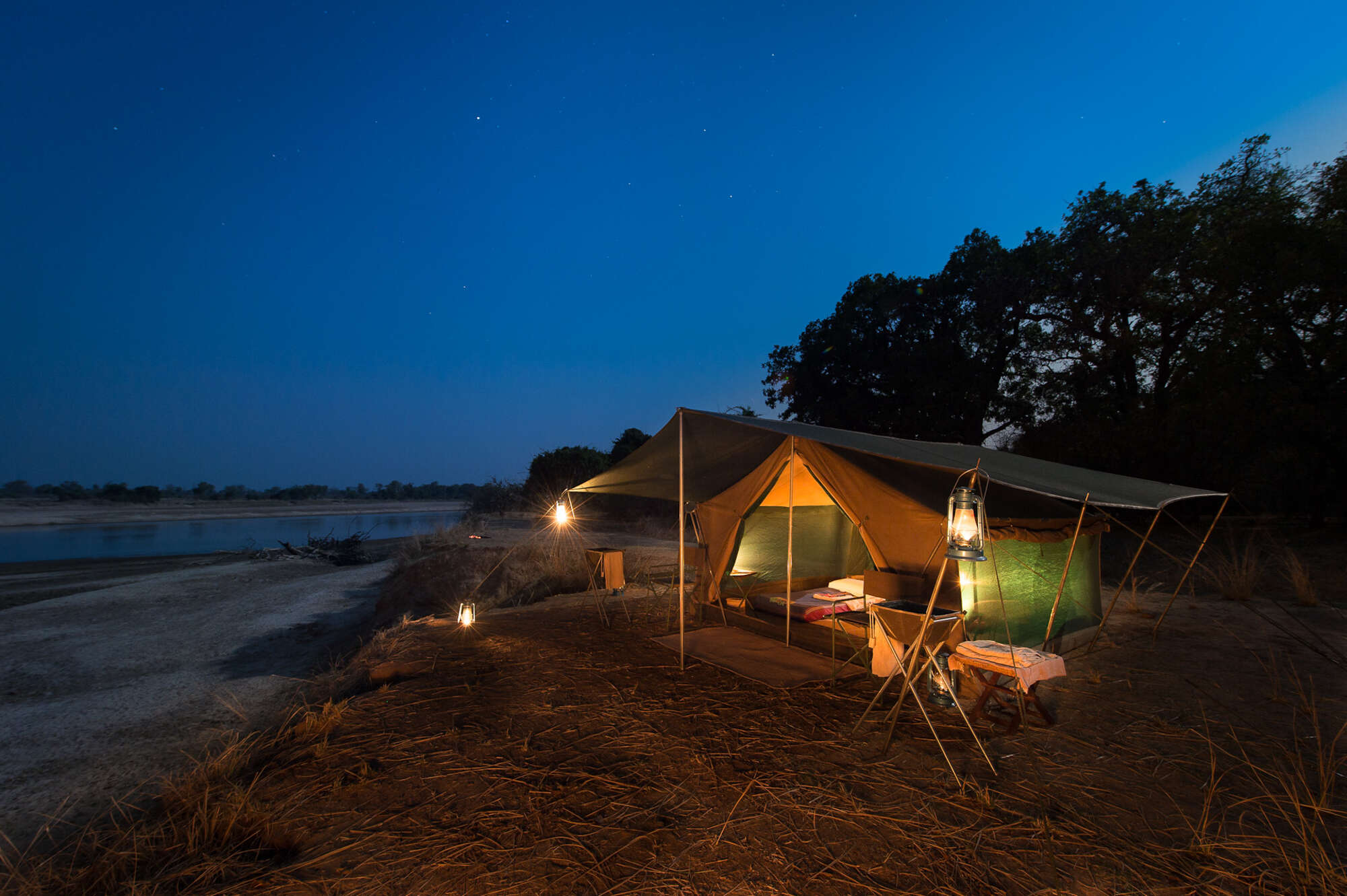About Island Bush Camp
The simple Island Bush Camp is in a very remote area of the South Luangwa, a 2–2½-hour drive south of the ...
... main area of Mfuwe. It focuses heavily on walking safaris in a wilderness environment, and these will make up the bulk of your activities here, but it does also offer some limited drives.
Island Bush Camp is an excellent-value walking camp, in a very wild area far from any other camps in the park. The chalets are very simple, and the experience here is quite rugged and outdoorsy. It will suit people looking for a real wilderness experience and a competitive price.
Our view
Island Bush Camp is an excellent-value walking camp, in a very wild area far from any other camps in the park. The chalets are very simple, and the experience here is quite rugged and outdoorsy. It will suit people looking for a real wilderness experience and a competitive price.
Accommodation
5 Bush chalets
Children
Best for 16+
Open
20th May to 1st November
Activities

4WD Safari

Birdwatching

Cultural excursion

Guided walking safari

Night drive
Traveller reviews of Island Bush Camp
13 real, un-edited reviews from Expert Africa's travellers.
Arrived 29 Sep 2023, 3 nights
"Island Bush Camp review"
Overall rating: Excellent
Arrived 12 Sep 2023, 3 nights
"Island Bush Camp review"
Overall rating: Excellent
Arrived 29 Aug 2023, 3 nights
"Island Bush Camp review"
Overall rating: Excellent
Arrived 25 Sep 2022, 2 nights
"Island Bush Camp review"
Overall rating: Excellent
Arrived 22 Aug 2018, 2 nights
"Island Bush Camp review"
Overall rating: Excellent
Arrived 14 Sep 2016, 2 nights
"Tranquil Island Bush Camp"
Overall rating: Excellent
Arrived 29 Jul 2016, 2 nights
"Walking safari at Island Bush Camp"
Overall rating: Excellent
Arrived 25 Jul 2016, 3 nights
"Great stay at Island Bush Camp"
Overall rating: Excellent
Arrived 6 Jul 2016, 2 nights
"Island Bush Camp review"
Overall rating: Excellent
Arrived 26 Sep 2014, 2 nights
"A fantastic experience"
Overall rating: Excellent
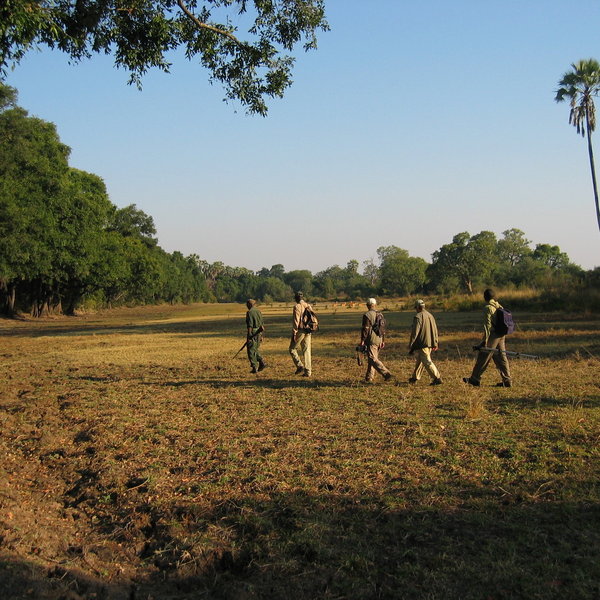
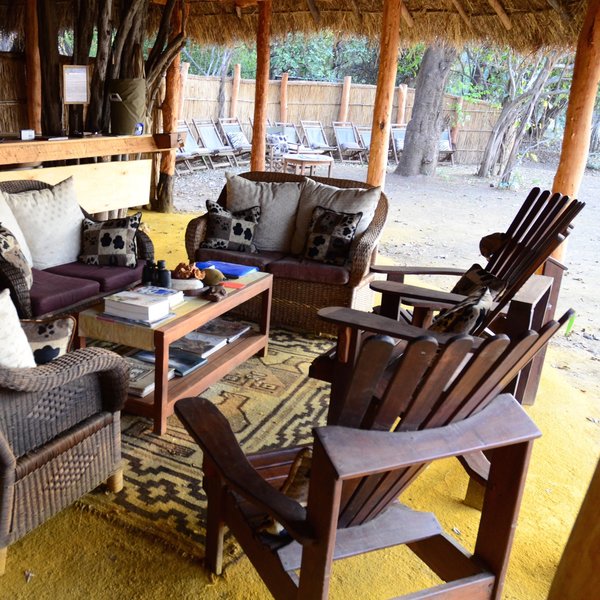
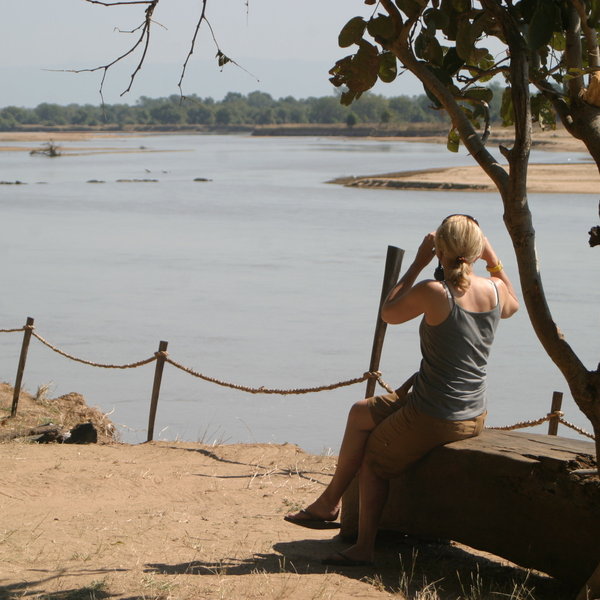
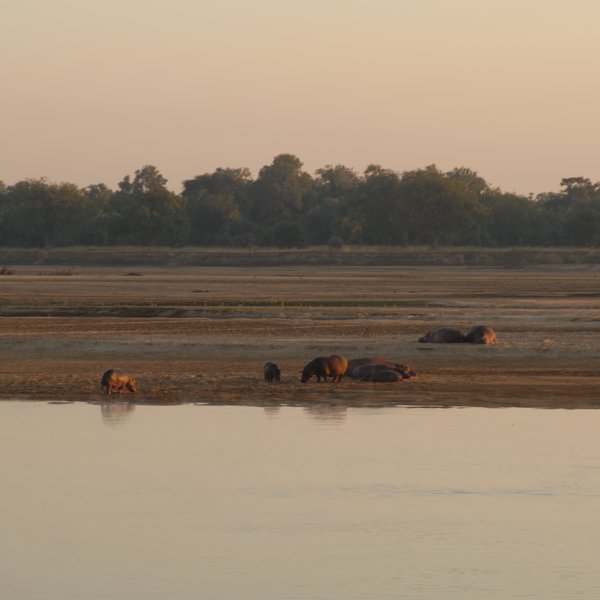
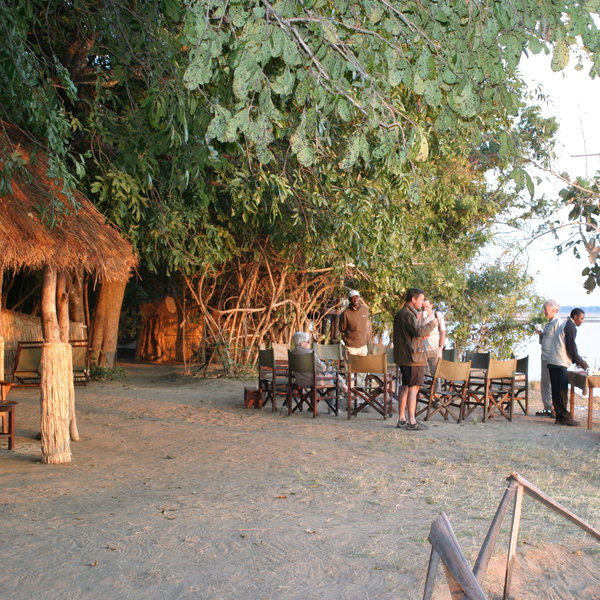
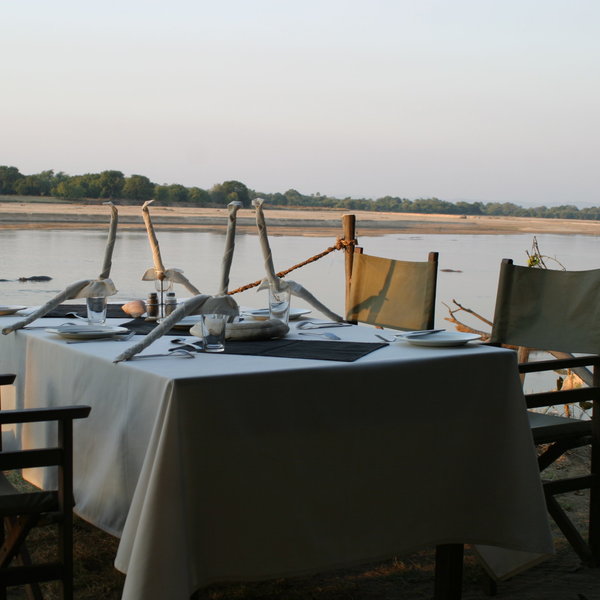
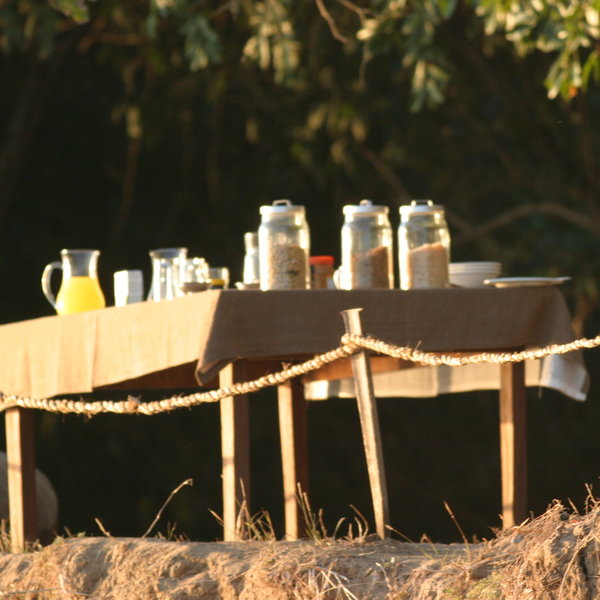
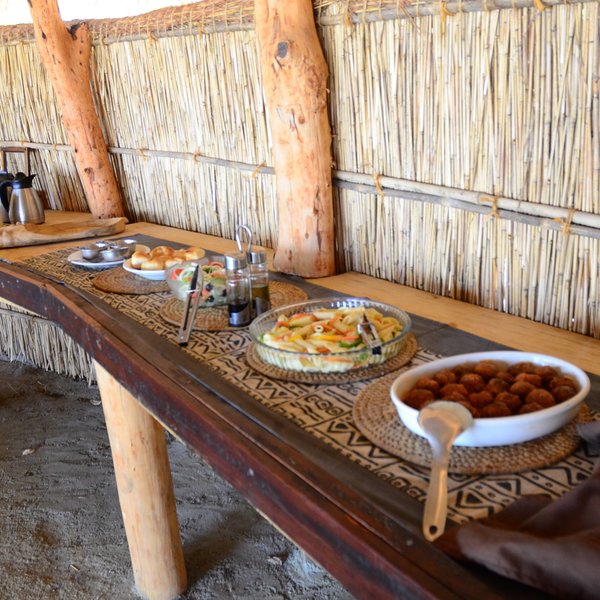
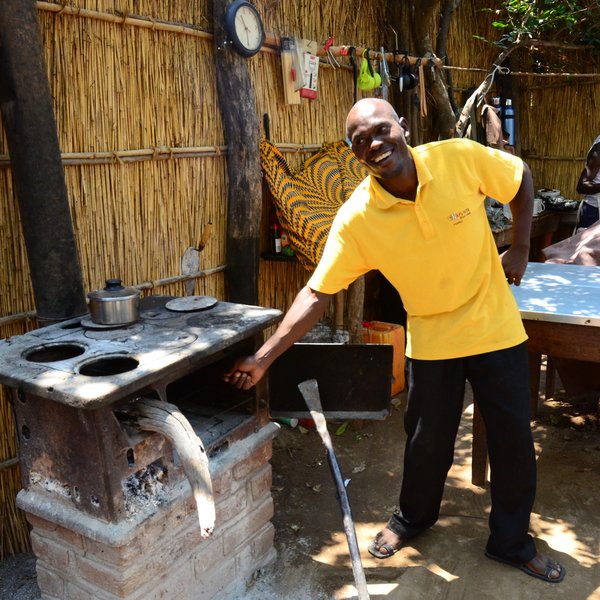
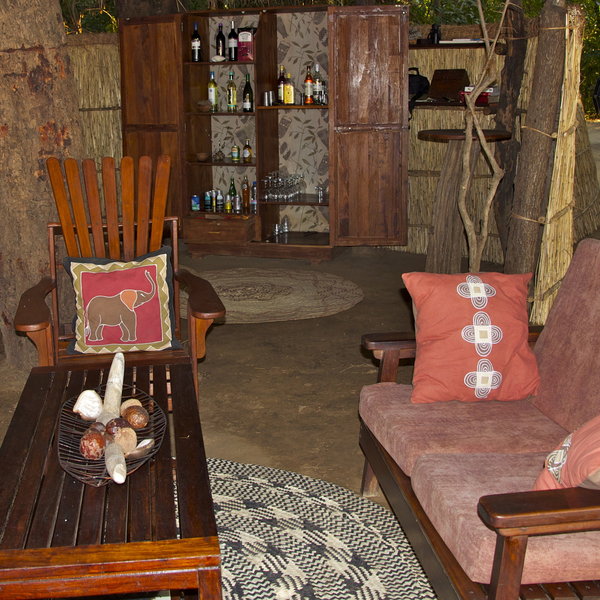
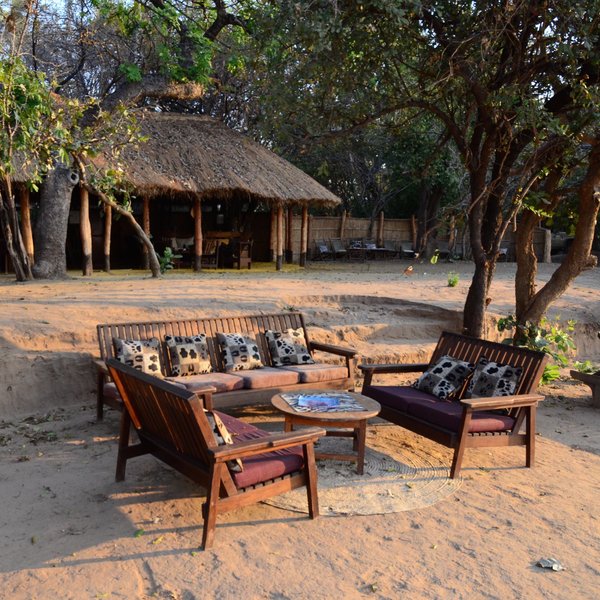
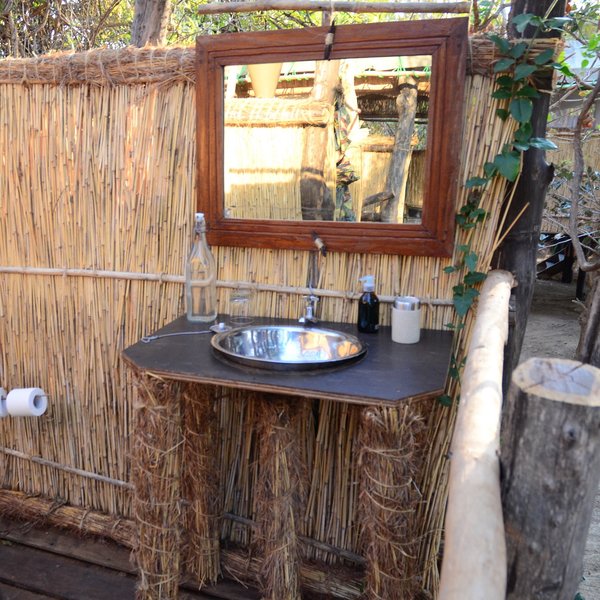
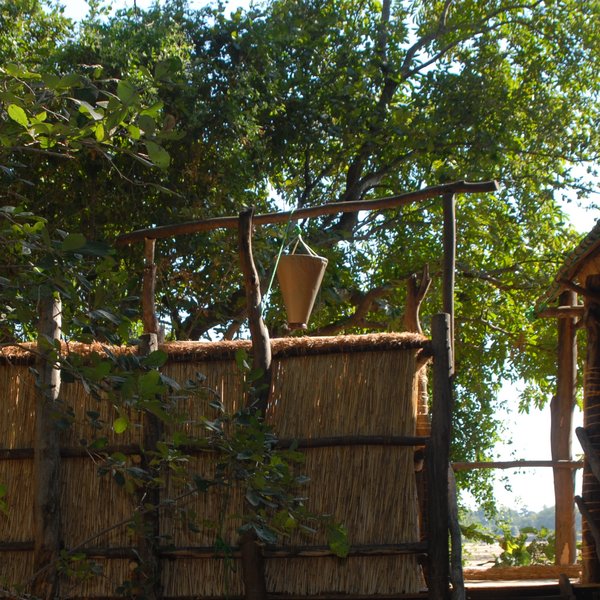
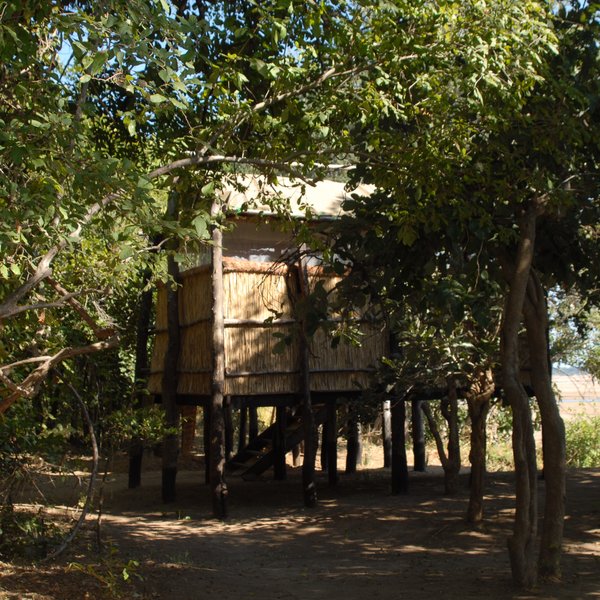
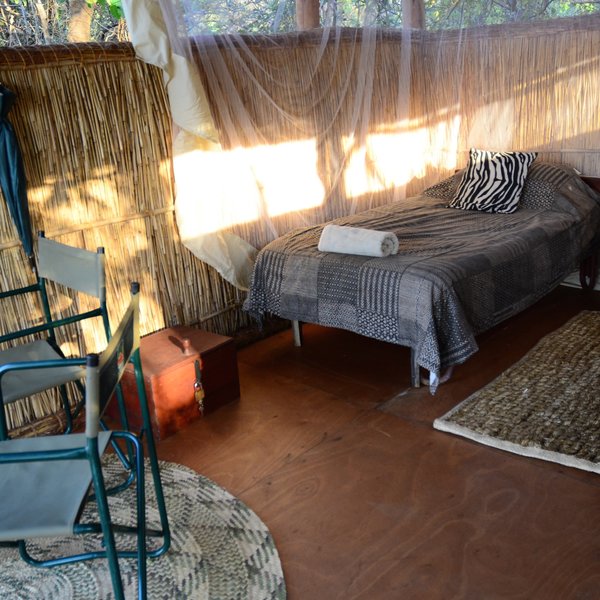
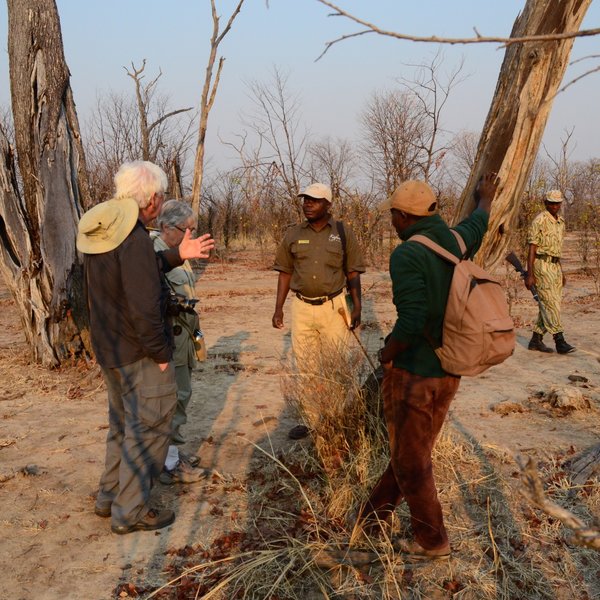
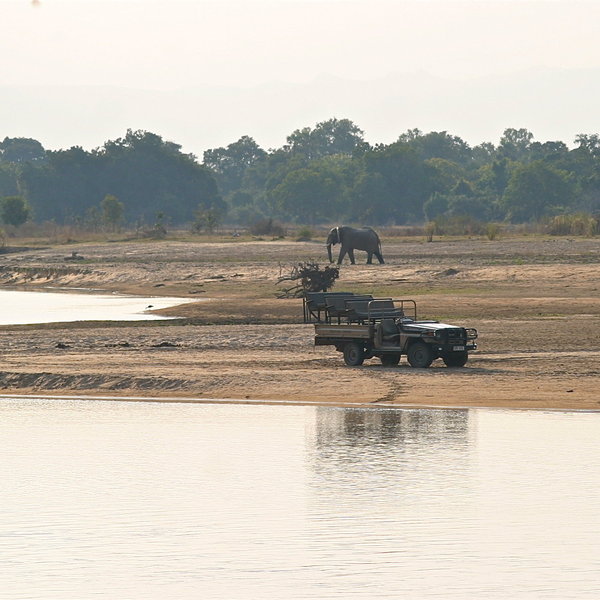
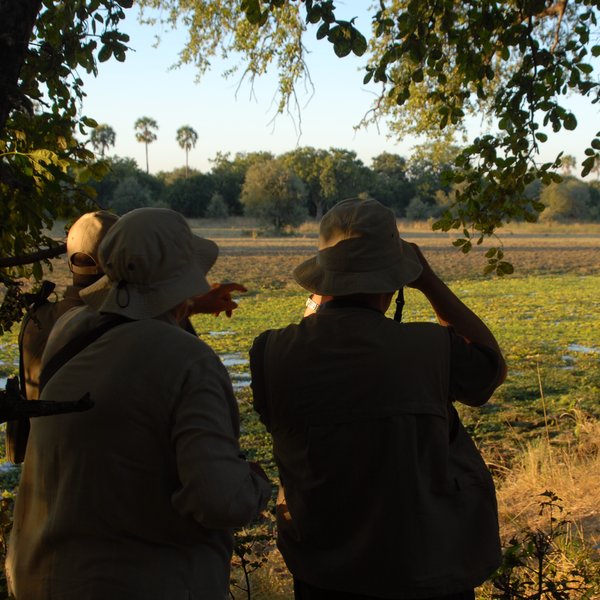
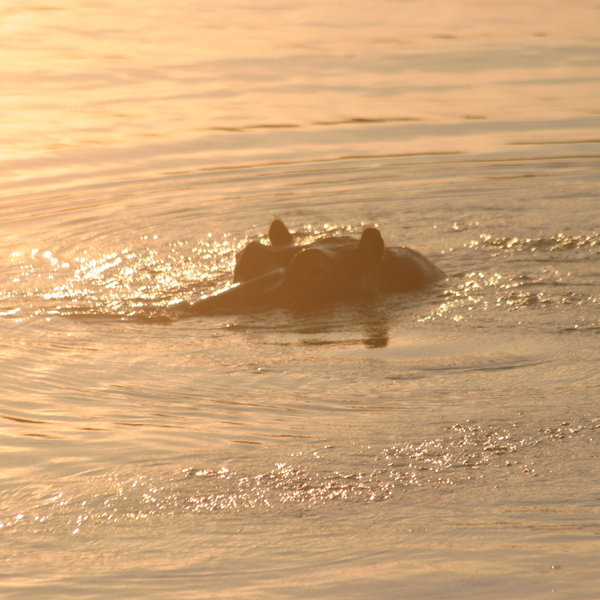
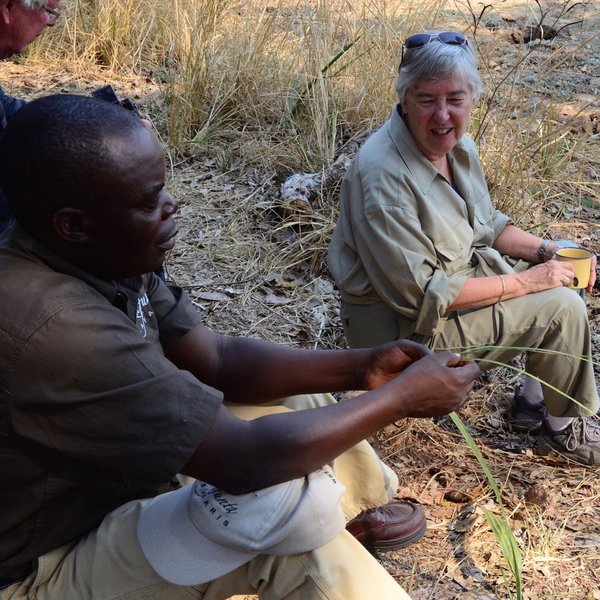
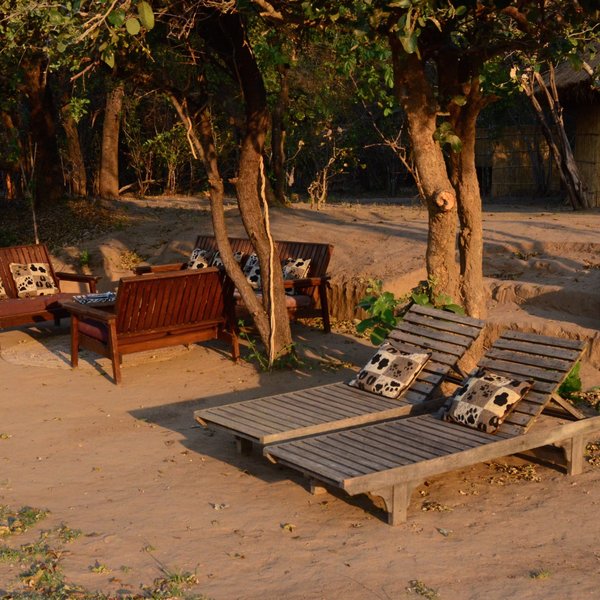
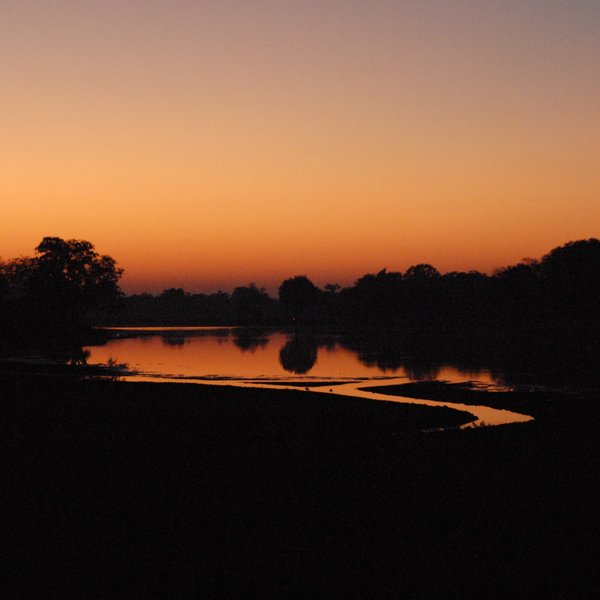
Expert Africa's gallery
When we travel we take lots of photos ourselves to give you a real and un-edited view of the safaris. See our 35 pictures and 1 videos of Island Bush Camp to get the candid view.
View gallerySafaris visiting Island Bush Camp
Just ideas, we'll always tailor-make a trip for you
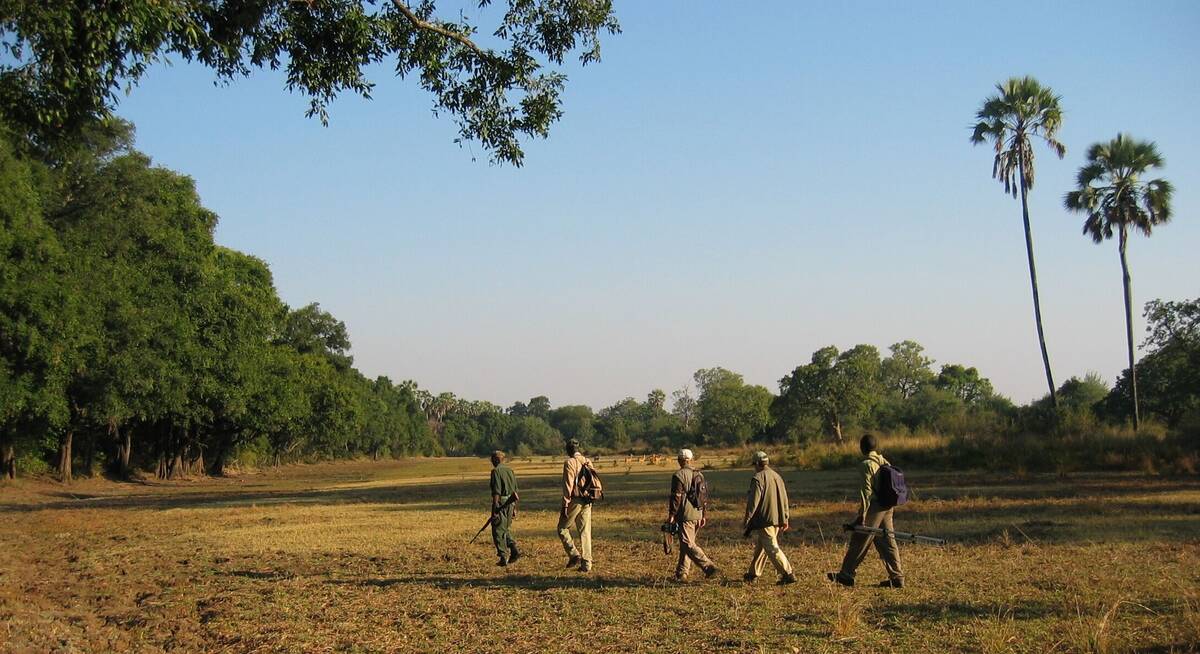
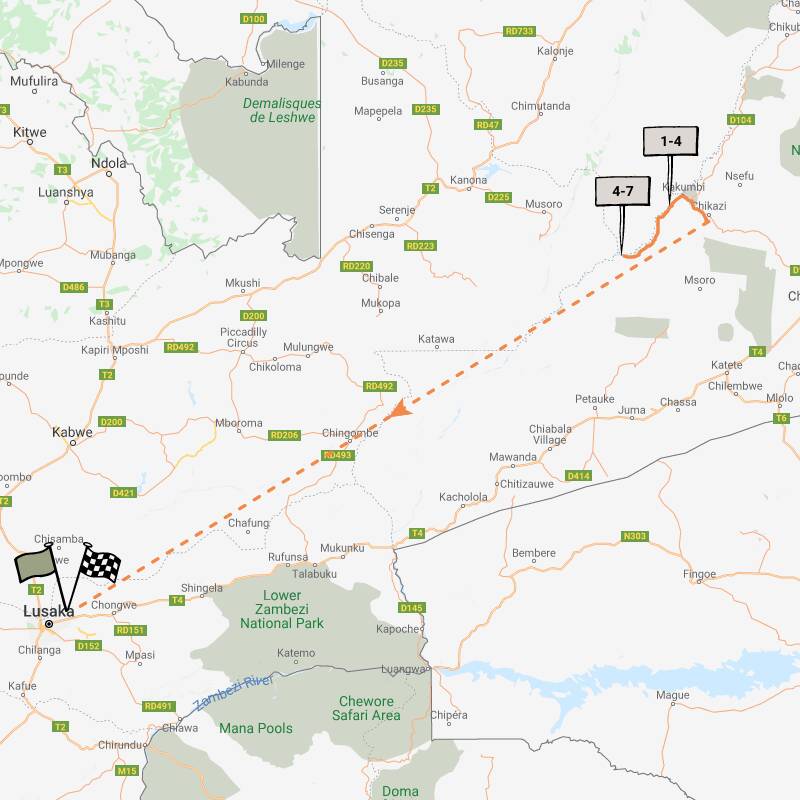
Nile Monitor Safari
6 days • 2 locations • 1 country
LUSAKA AIRPORT TO LUSAKA AIRPORT
Great-value South Luangwa safari to two sister camps: a classic safari camp for 4WD safaris by day and night and its simpler sibling: a remote, seasonal bushcamp for expert-guided walking safaris.
Visiting South Luangwa
US$4,800 - US$4,800 per person
Island Bush Camp: Our full report
The simple Island Bush Camp is in a very remote area of the South Luangwa, a 2–2½-hour drive south of the ...
... main area of Mfuwe. It focuses heavily on walking safaris in a wilderness environment, and these will make up the bulk of your activities here, but it does also offer some limited drives.
Because of Island Bush Camp’s distance from the airport (four hours’ drive), most guests start their journey at its sister camp, Kafunta River Lodge, before continuing on. This makes for an excellent-value safari, as neither camp is costly for the standard they offer. From Kafunta to Island Bush Camp it’s a 2–2½-hour drive along bumpy roads and through some of the local villages. (The vehicles are usually uncovered, so be sure to bring suncream and a hat.) Most of this drive is outside the park so you won’t see much wildlife, but we did see elephant and warthog along the way on our last visit in June 2015.
Island Bush Camp is a simple property, with just five thatched bush chalets, all identical in build and style. Each is raised off the ground on its own wooden platform, and is completely open at the front, so you can sit and enjoy the view of the Luangwa River from your bed. The design also allows you to hear clearly the sounds of the bush, such as the honking from the pod of hippos in the nearby river. The chalets are perfect for truly feeling that you are in the bush!
All of the rooms have twin single beds (there are no double rooms), a couple of directors’ chairs and a small table with a solar-powered light and a jug of filtered drinking water. A small walkway leads to the open-air, en-suite bathroom, which is on the same level as the bedroom. Here you’ll find a bucket shower that is filled with hot water (enough for at least a ten-minute shower) when you wake up in the morning, and again when you arrive back from your evening activity. There is also a flushing toilet and a washbasin with cold running water.
The main area at Island Bush Camp is a large, thatched, and semi-open building facing towards the river. As well as a large dining table and a lounge area with sofas and armchairs, it houses a well-stocked bar. In front, directors’ chairs are positioned around a firepit that faces out over the river.
Food is freshly prepared in the camp’s open-air kitchen using a simple wood-burning stove. Ask for a tour of the kitchen – it is extremely interesting and adds to the marvel of the excellent meals prepared each day. Meals, whether are served inside the main thatched chalet, or outside next to the river, are sociable events – as is a drink around the campfire.
Activities at Island Bush Camp focus mainly on walking, with an experienced guide and an armed scout. You will usually start out in a vehicle, driving to a good area for walking before disembarking and exploring the area on foot for a few hours. You’ll then enjoy some morning tea, or sundowner drinks, before heading back to camp on foot or in the vehicle. Pure game drives are also possible here, but they aren’t the norm. At capacity the camp can take ten guests, in which case they are split into two groups to avoid overcrowding on activities.
Activities
4WD Safari
Birdwatching
Cultural excursion
Guided walking safari
Night drive
Families & children
- Attitude towards children
- There is a minimum age of 12 years for walking safaris.
- Property’s age restrictions
- Minimum of 12 years.
- Special activities & services
- None.
- Equipment
- None.
- Generally recommended for children
- Island Bush Camp is not geared in any way to children. Although those over the age of 12 can participate in walking safaris, this is not a great environment for children of that age.
Food & drink
- Usual board basis
- Full Board & Activities
- Food quality
- The food at Island Bush Camp was very tasty when we last visited in June 2015.
Breakfast was served around the campfire, with toast, cereals, fruit and porridge on offer, along with coffee, tea and fruit juice.
Lunch was laid out as a buffet to which guests helped themselves. We enjoyed pasta with meatballs in a rich tomato sauce and a salad on the side. For pudding we were served a refreshing fruit salad.
Dinner was probably the best of our three meals. The starter of corn chowder was very tasty and served with fresh bread. The main course, a beef stir-fry,was delicious, full of flavour. This came with rice, beans and carrots. The meal was rounded off with a smooth crème caramel. - Dining style
- Group Meals
- Dining locations
- Indoor and Outdoor Dining
- Further dining info, including room service
- No
- Drinks included
- Most drinks are included, apart from champagne and specially imported wines and spirits.
Our travellers’ wildlife sightings from Island Bush Camp
Since mid-2018, many of our travellers who stayed at Island Bush Camp have kindly recorded their wildlife sightings and shared them with us. The results are below. Click an animal to see more, and here to see more on our methodology.

100% success

100% success

100% success

80% success

75% success

60% success

40% success

40% success

20% success

0% success

0% success

0% success

0% success

0% success

0% success
Getting there
- Location
- South Luangwa National Park, Zambia
- Ideal length of stay
- 2 to 3 nights
- Directions
- Island Bush Camp is a 2–2½-hour drive south of its sister camp, Kafunta River Lodge.
- Accessible by
- Fly-and-Transfer
Special interests
- Scenic walking & hiking
- Island Bush Camp is a simple, remote camp in the far south of Zambia’s South Luangwa National Park that focuses almost entirely on walking safaris, led by expert guides and an armed scout.
- See ideas for Scenic walking & hiking in Zambia
Communications
- Communications
- None
- TV & radio
- None
- Water supply
- Transported in
- Water supply notes
- Water from the borehole is used for bucket showers. There are plumbed in washbasins with cold water and flushing toilets in each of the bathrooms.
Health & safety
- Malarial protection recommended
- Yes
- Medical care
- There is a bush clinic with a nurse nearby, but the nearest doctor to Island Bush Camp is in Mfuwe. For emergencies there is an airstrip about 20km away that is a 30-40 minute drive. There is a first-aid kit at camp, and one is taken on all activities. The guides and manager are first-aid trained.
- Dangerous animals
- High Risk
- Security measures
- There are no security guards as such, but guests are still escorted to their rooms at night and there is a scout in camp at all times.
- Fire safety
- Island Bush Camp has fire extinguishers in the vehicles and sand buckets at the camp.
Useful info
- Disabled access
- In Place
- Laundry facilities
- Laundry is included. It is hand-washed and line-dried.
- Money
- There are lockable boxes in the chalets. Otherwise, guests may leave valuables in the safe at Kafunta.
- Accepted payment on location
- All payment is done at Kafunta.
Plan and book your trip with Expert Africa
All of our trips are tailor-made, so we'll always adapt them to suit you. Talk to an Expert and let us plan and arrange your perfect trip.

Talk to an Expert
Call or email us now! We’ll match you with the Specialist in our team who is best suited to help you. Then together we can start planning your trip.

Set up your itinerary
Based on our experience and your ideas, your specialist will create a detailed, costed itinerary. We’ll refine it together, until we have a trip that you’re perfectly happy with.

Prepare for your trip
The same Specialist will make the seamless arrangements for your trip, send you detailed travel documents, and be available to answer any questions before you depart.

Travel with peace of mind
After you set off, you’ll be cared for by our partners in Africa, most of whom have worked with Expert Africa for decades. And if you ever need us urgently, we’re available 24/7.

When you return
We love to learn about your trip, and so will always be grateful if you’ve the time to give feedback to your Specialist when you return.
Island Bush Camp's location
Look closer at the environment and surroundings of Island Bush Camp.
Excursions from Island Bush Camp
Optional extra day-trips and excursions possible whilst you're staying at Island Bush Camp. Talk to us: these are usually best arranged before you go.
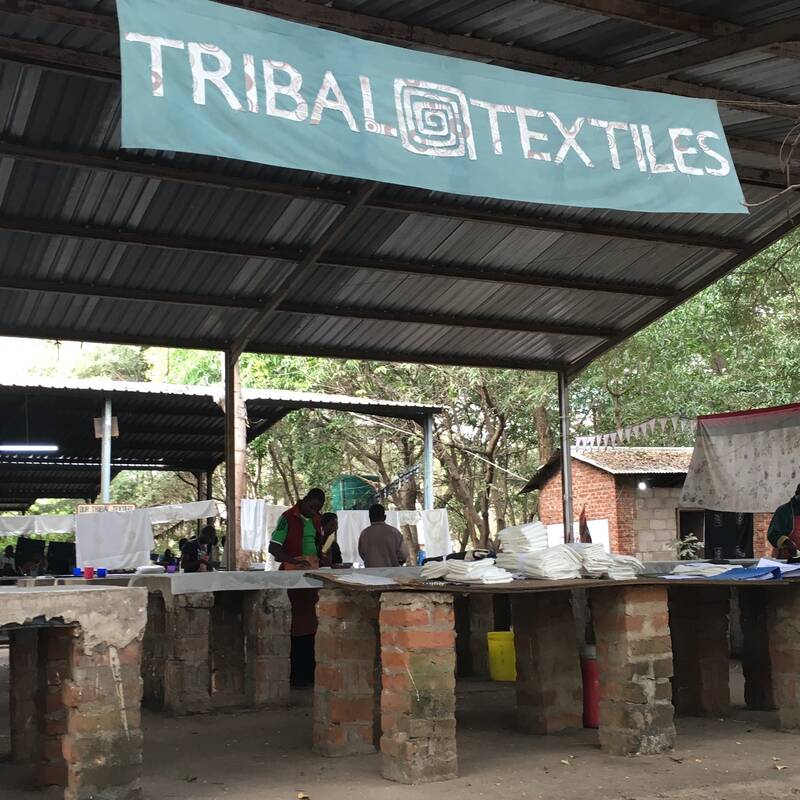
Tribal Textiles Tour
One - two hours
Visit the Tribal Textiles workshop, where hand-painted textiles are produced by more than a hundred local people. The workshop is close to Mfuwe Airport, so is ideally placed for a stop en route to/from the South Luangwa. With products ranging from cushion covers to bags and T-shirts, it's a great place for souvenir shopping while at the same time supporting the local community.
More about Tribal Textiles TourOther lodges in South Luangwa National Park
Alternative places to stay in this same area.
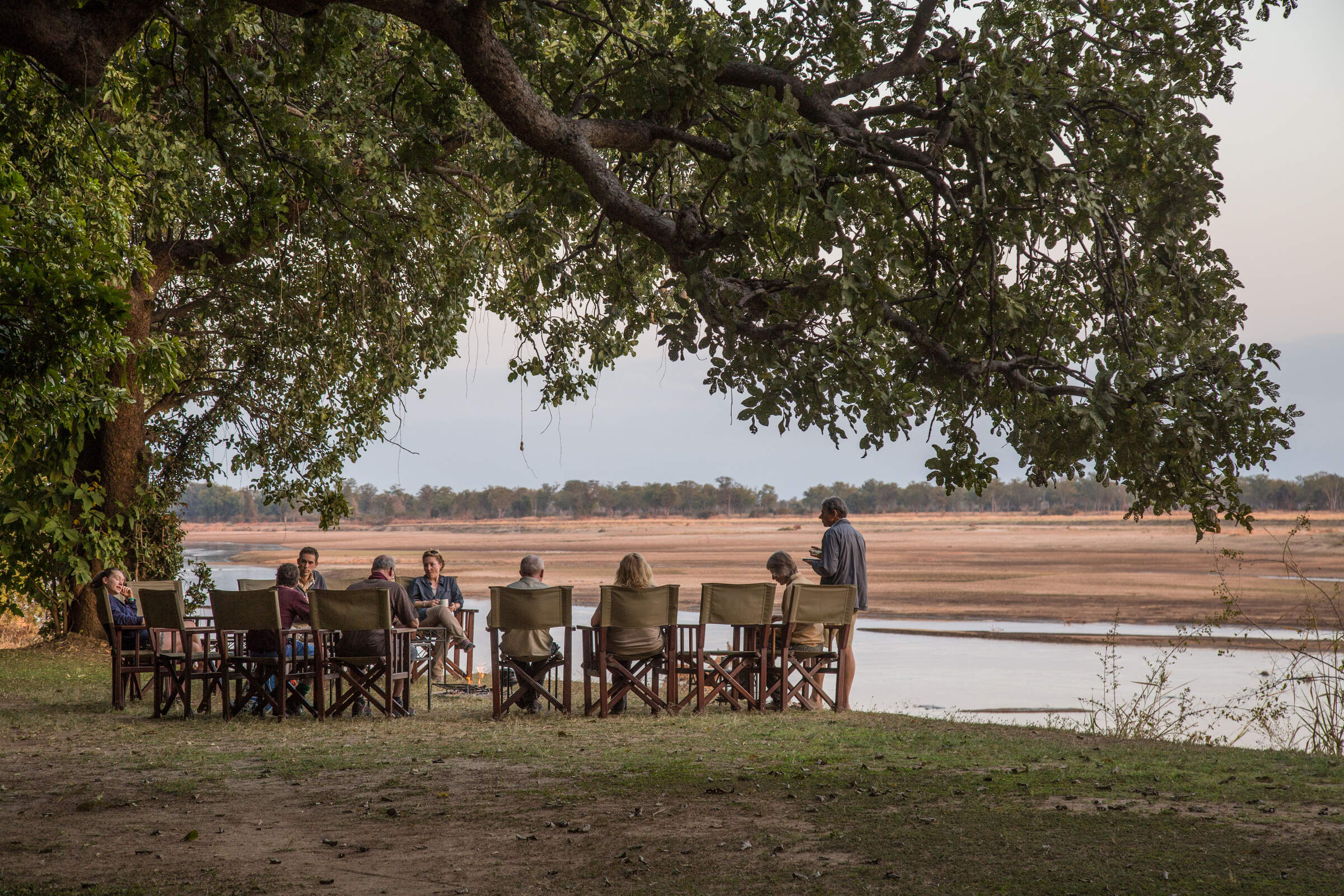
Tafika
One of the best camps in Zambia, Tafika is naturally built, combining excellent service and food with top guiding skills for a superb wildlife experience.
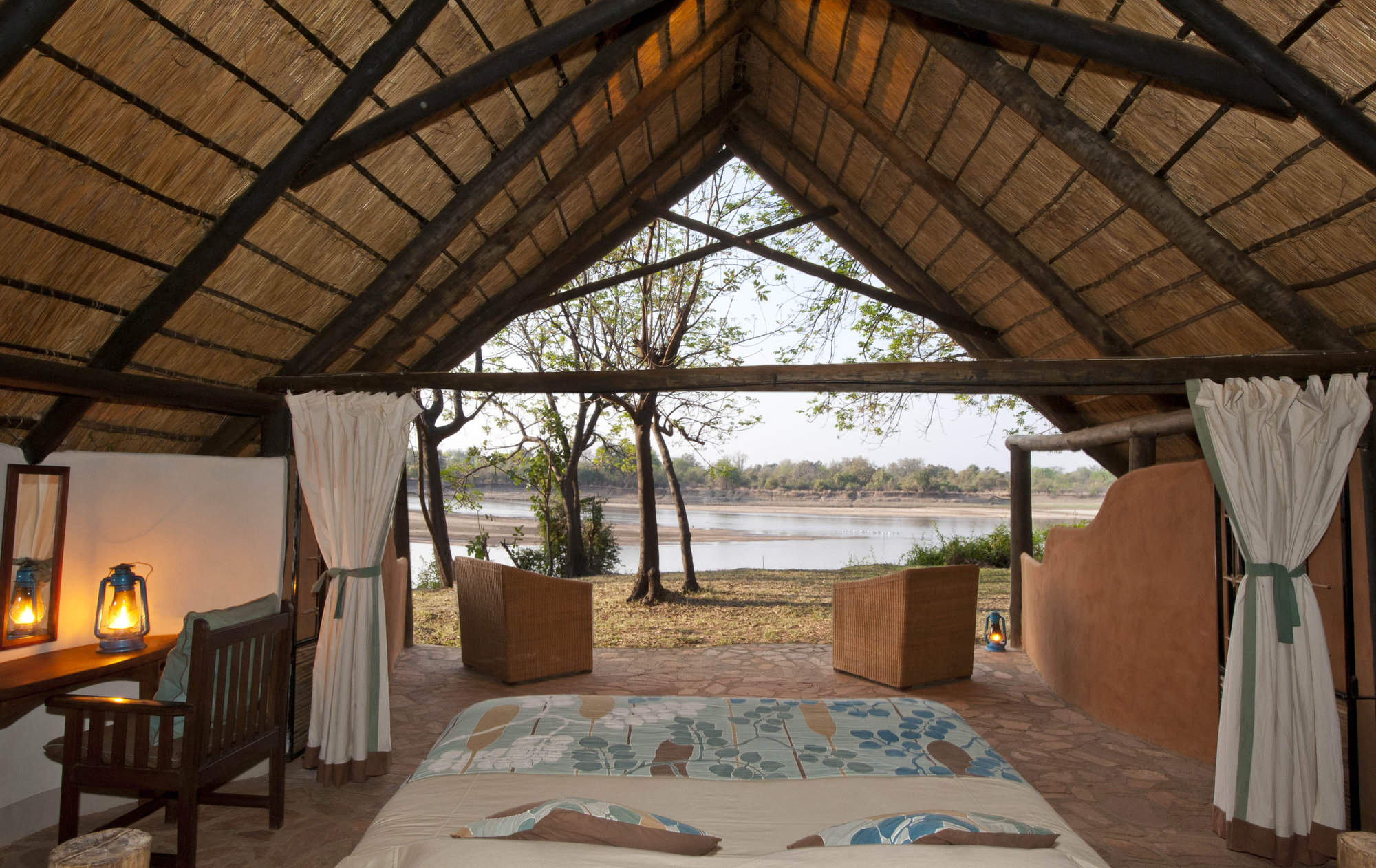
Nkwali
On the banks of the Luangwa River, with its own access to the national park, the intimate Nkwali is open year round.
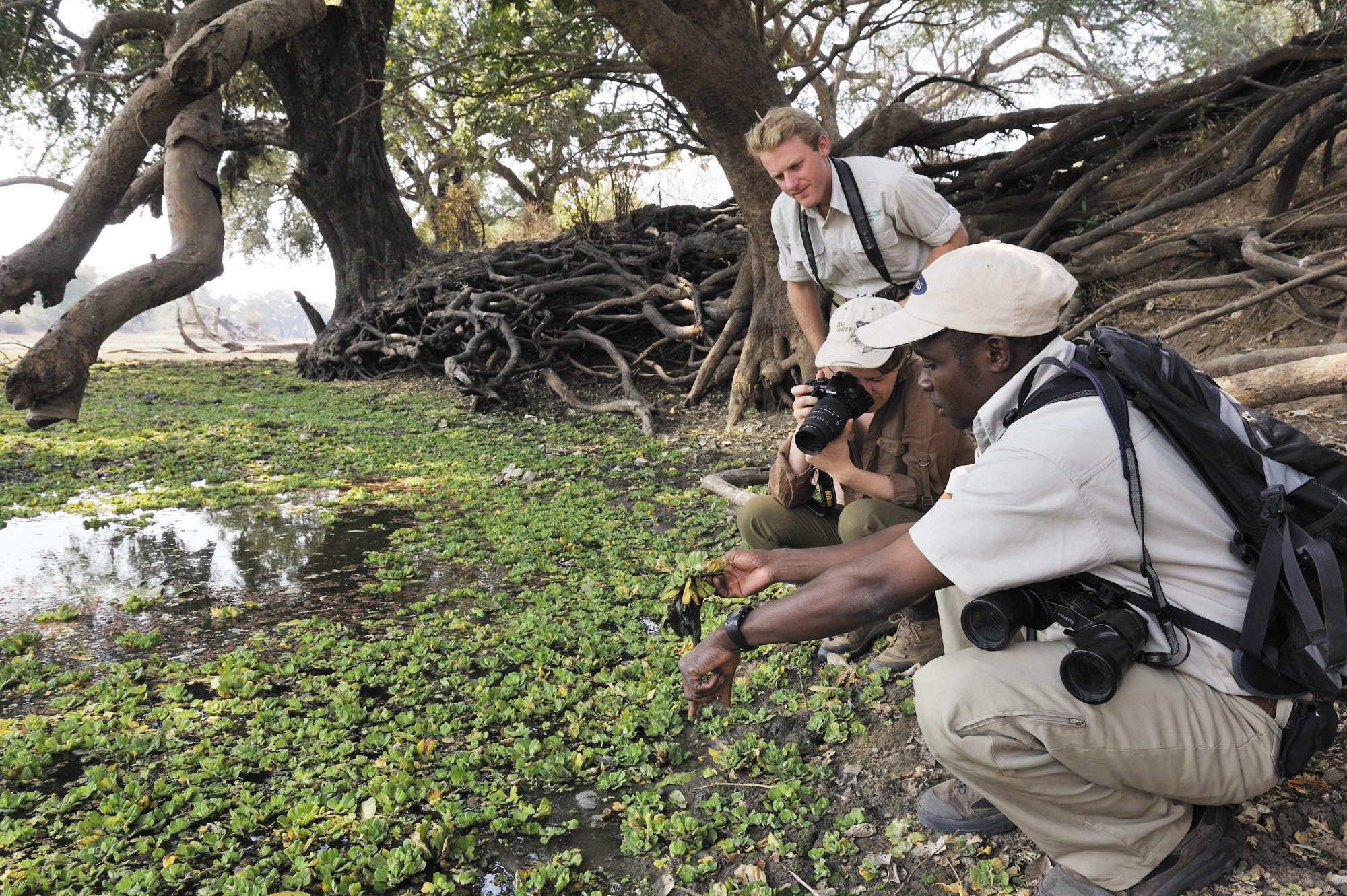
Kaingo Camp
Small and owner-run, the riverside Kaingo occupies a a quiet but excellent game area, with a series of wildlife hides and a focus on photography.
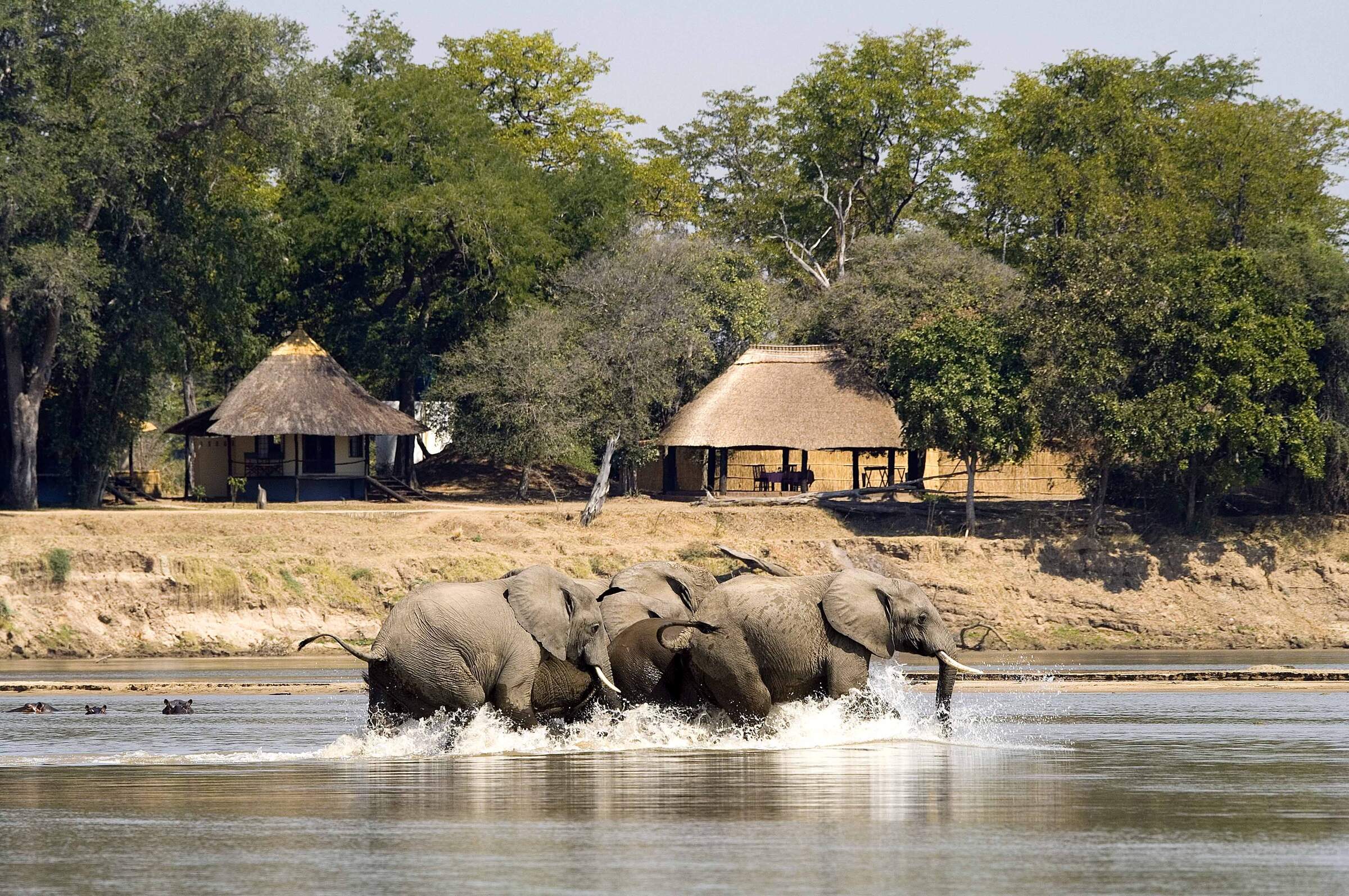
Nsefu
One of the Luangwa's oldest camps, Nsefu is a great safari camp in a remote, beautiful and game-rich location with top-rate guiding.
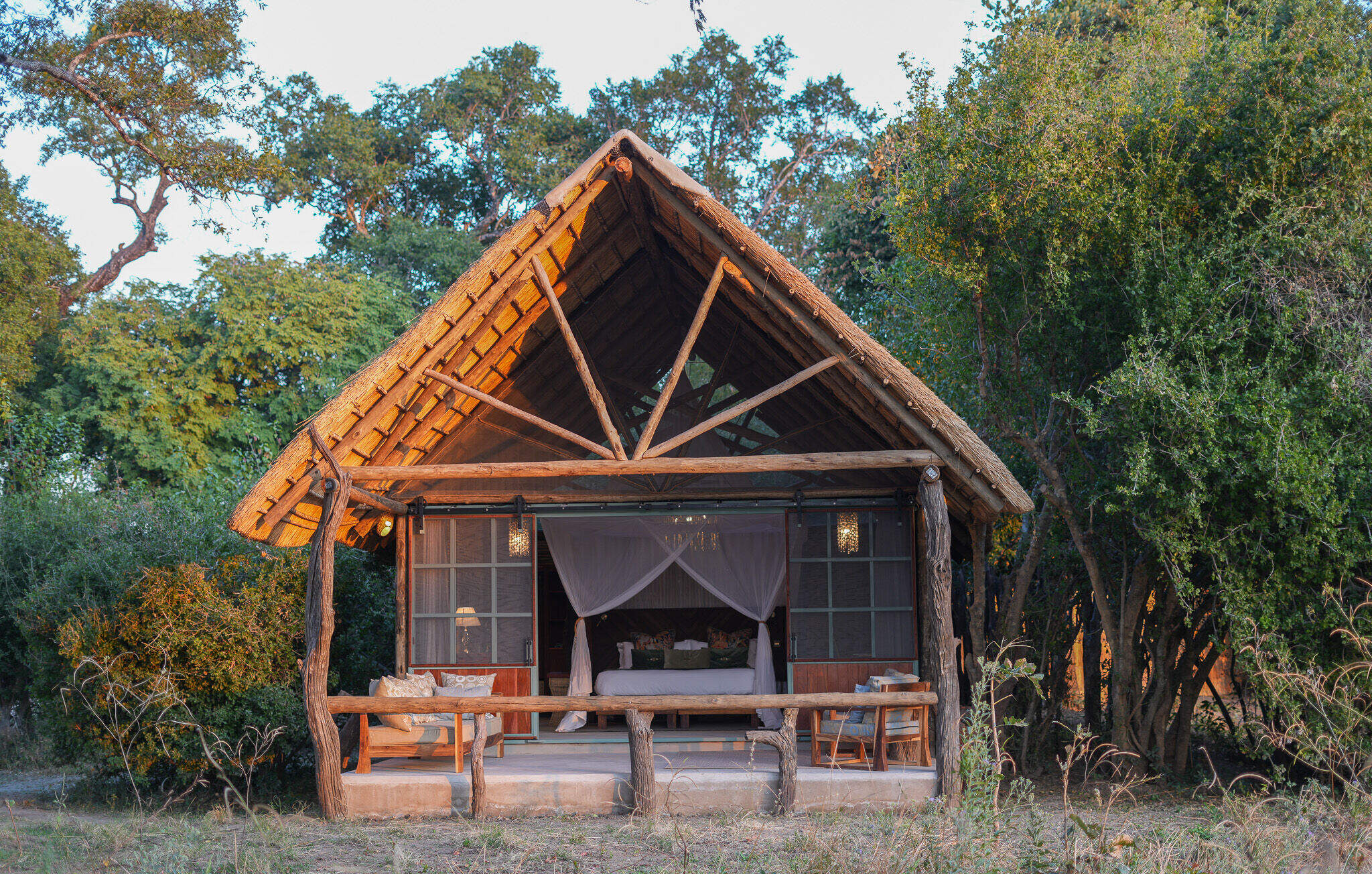
Mwamba Bushcamp
Small, remote and owner-run, Mwamba offers first-class walking, 4WD safari drives and superb hides, with excellent guides and a real bush feel.
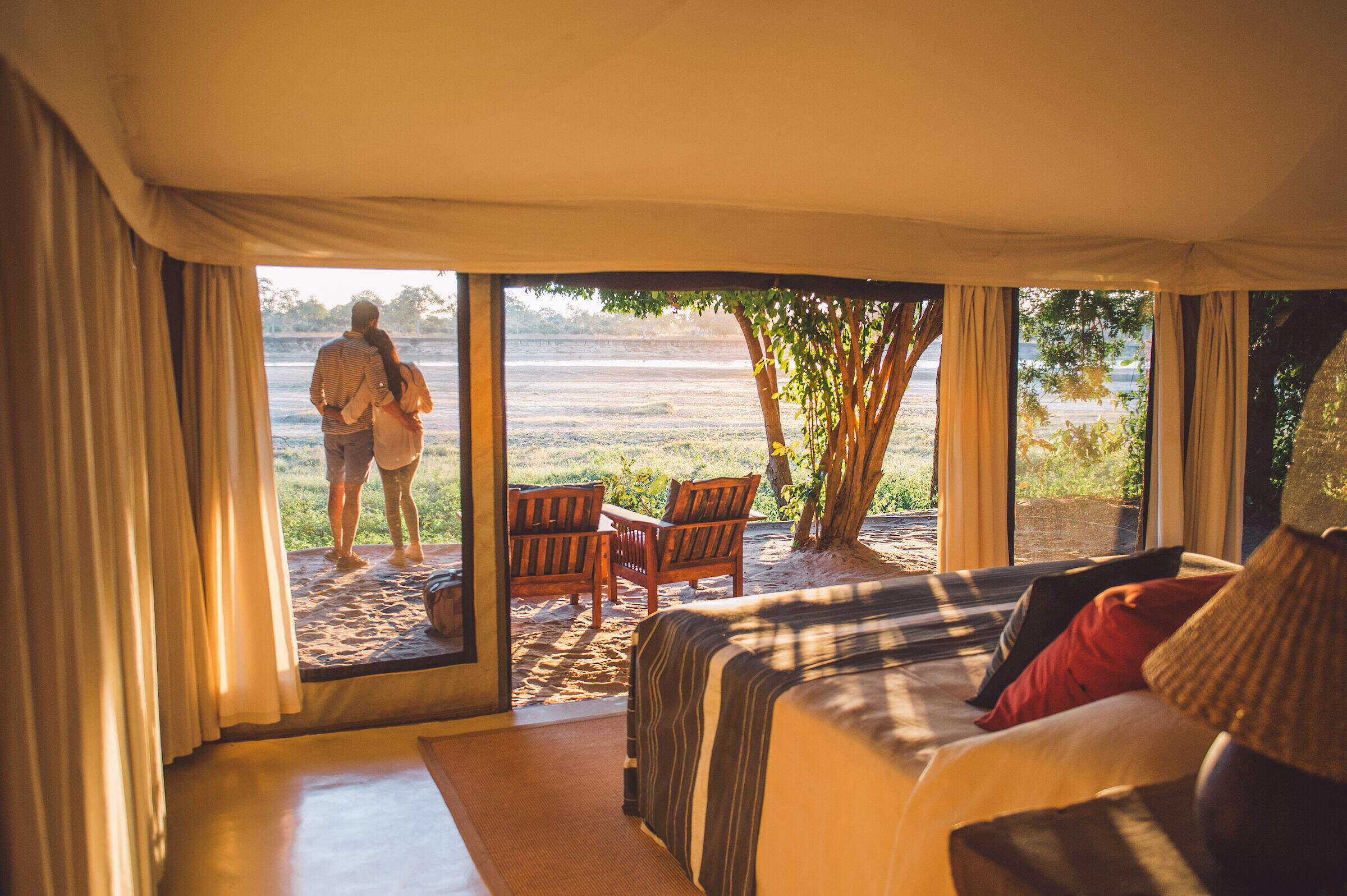
Tena Tena
One of the Luangwa's best camps, in a beautiful, remote bush location, Tena Tena is very small, exceedingly well-run and has top-rate guiding.
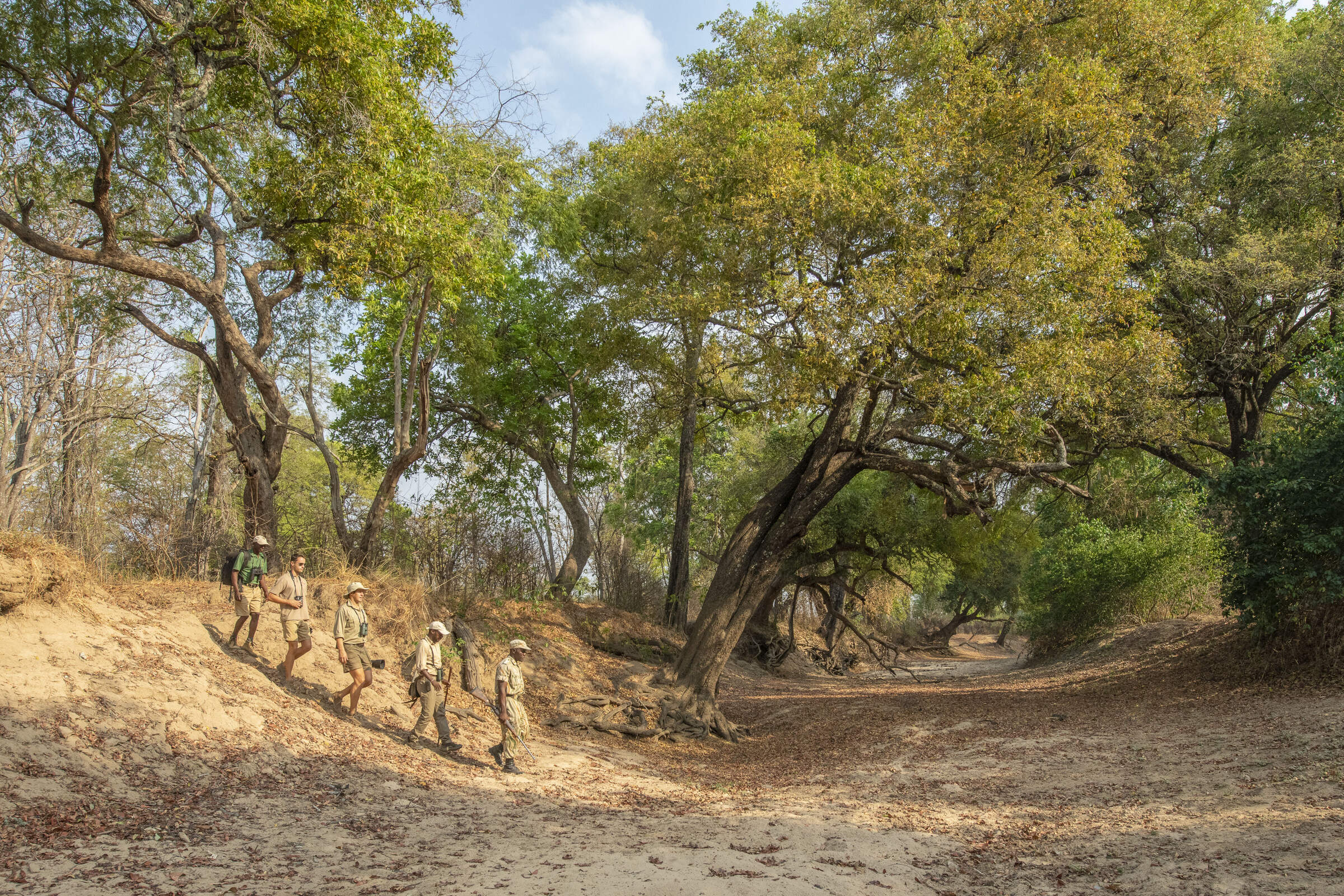
Chikoko Tree Camp
Chikoko Tree Camp is an excellent small, rustic bushcamp that concentrates on walking safaris, and is run by a top-quality operation.
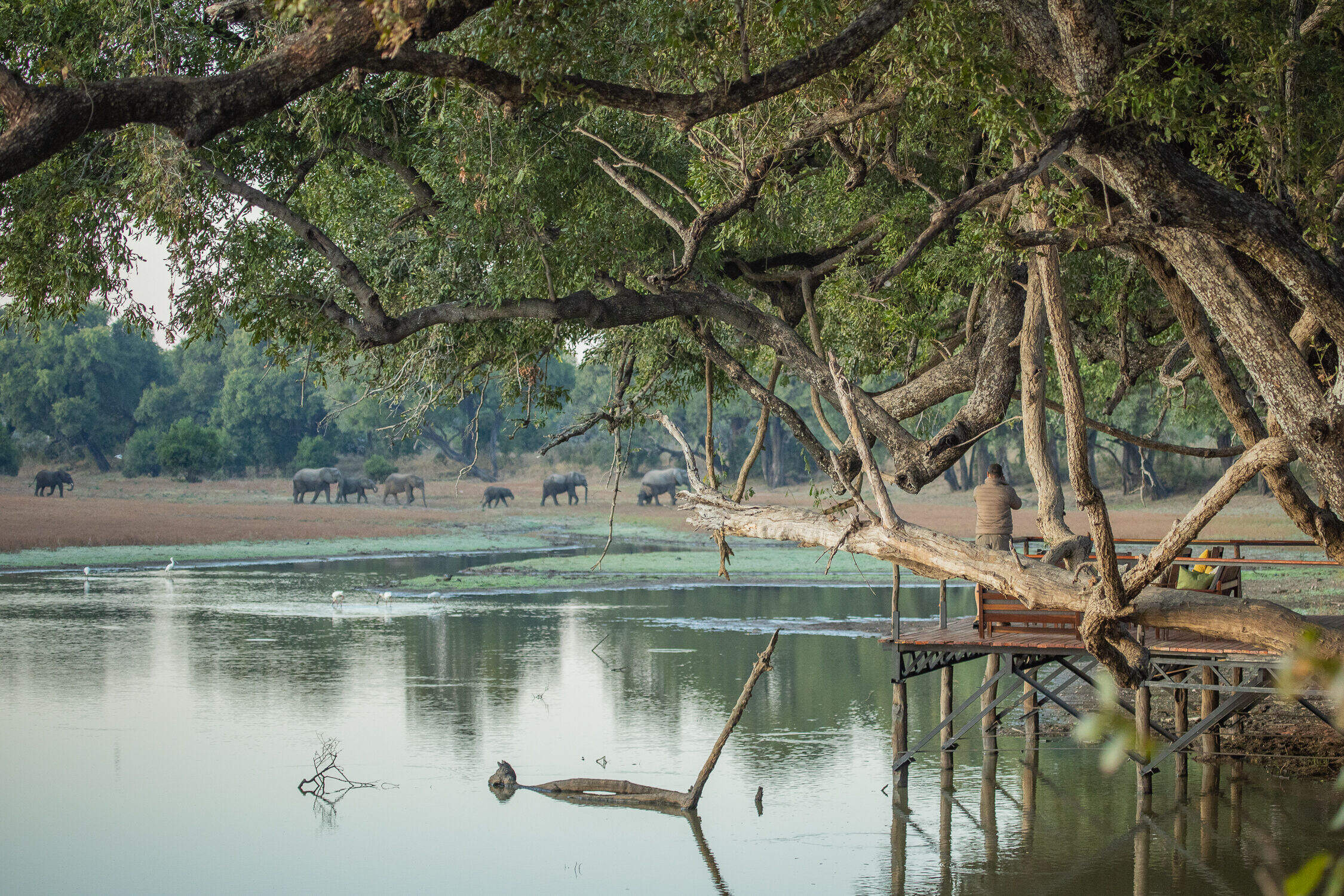
Big Lagoon Camp
Big Lagoon Camp is a great little rustic bushcamp built to high standards that focuses on excellent walking safaris, with the emphasis on top wildlife guides.
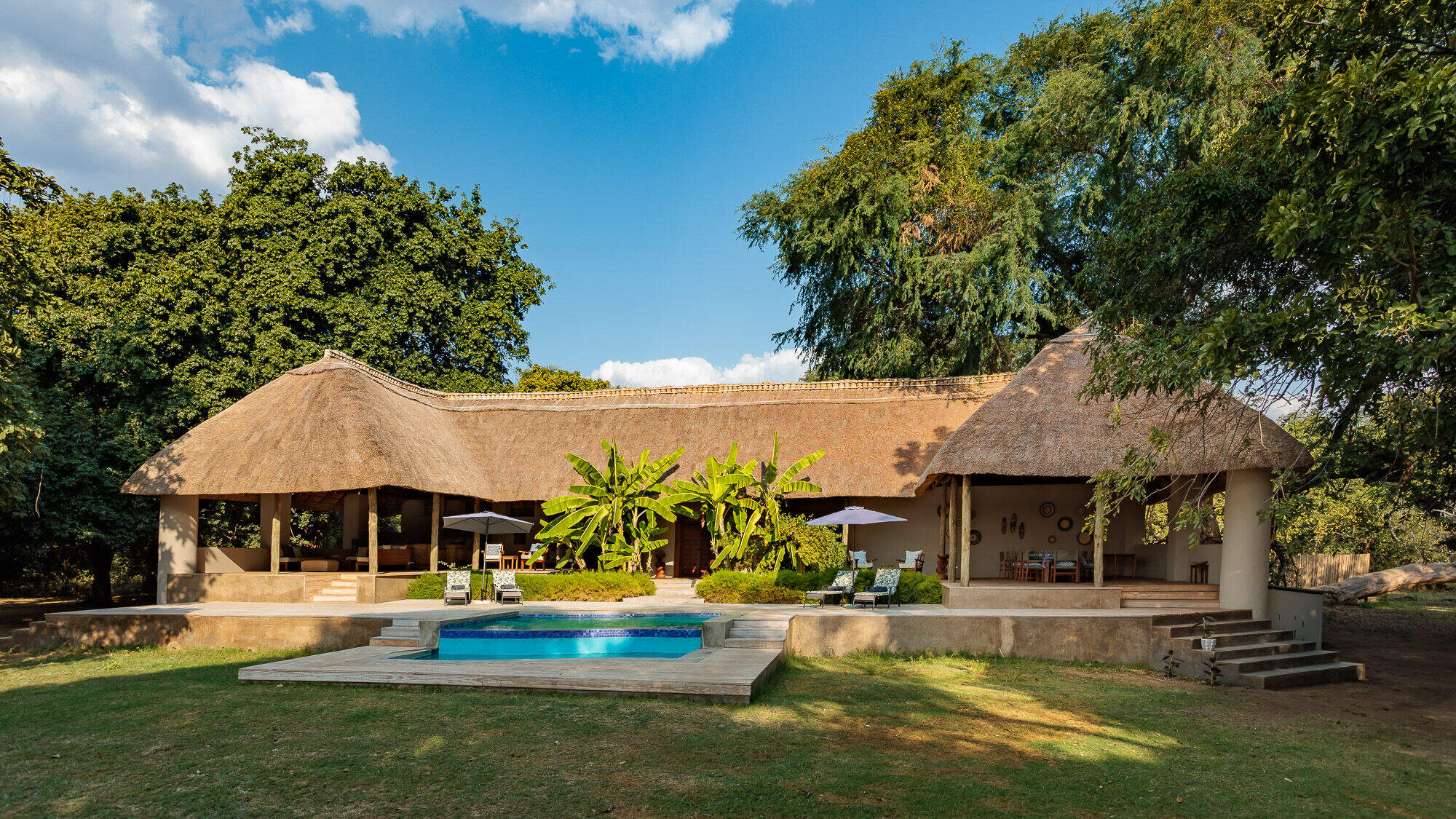
Luangwa River Camp
Luangwa River Lodge is a small and consciously stylish lodge in the Mfuwe area, overlooking the Luangwa River and the South Luangwa National Park beyond – an area renowned for great game.
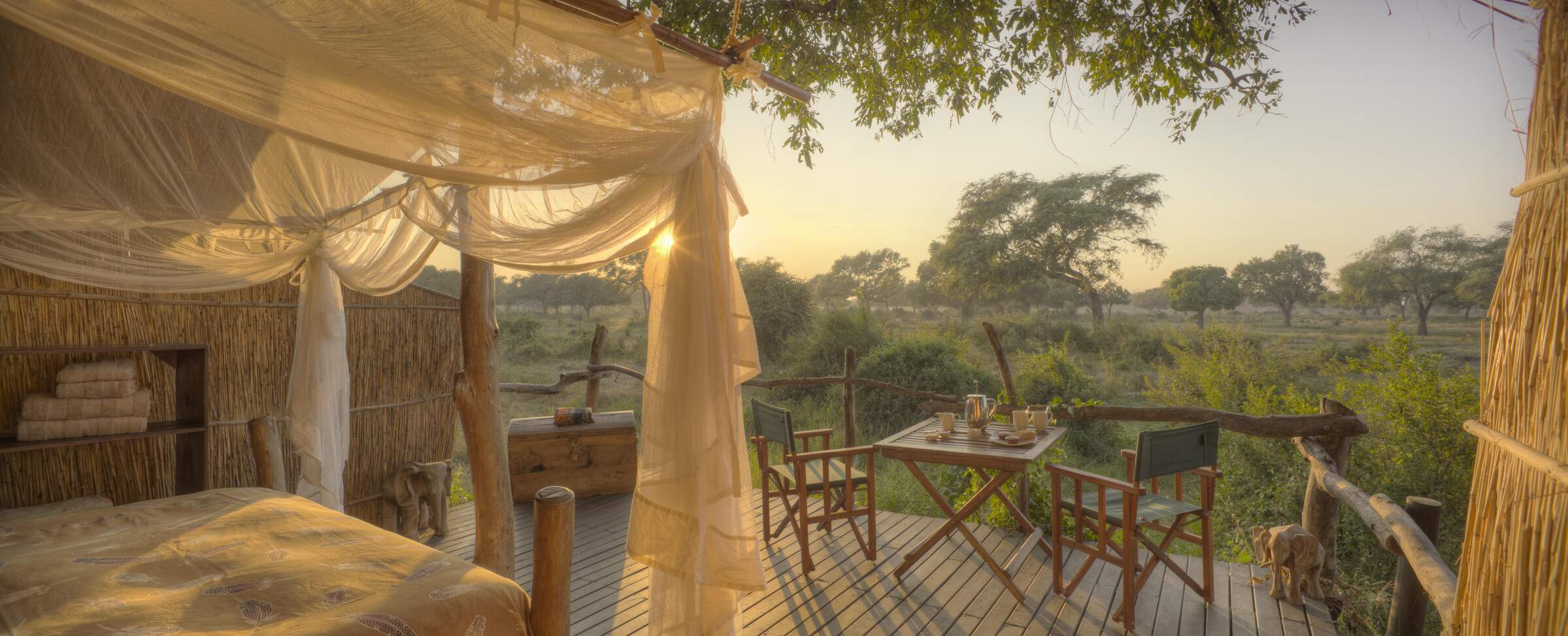
Flatdogs Camp
A relatively big safari camp, Flatdogs offers value for money with great guiding and good food in a comfortable, relaxed setting.
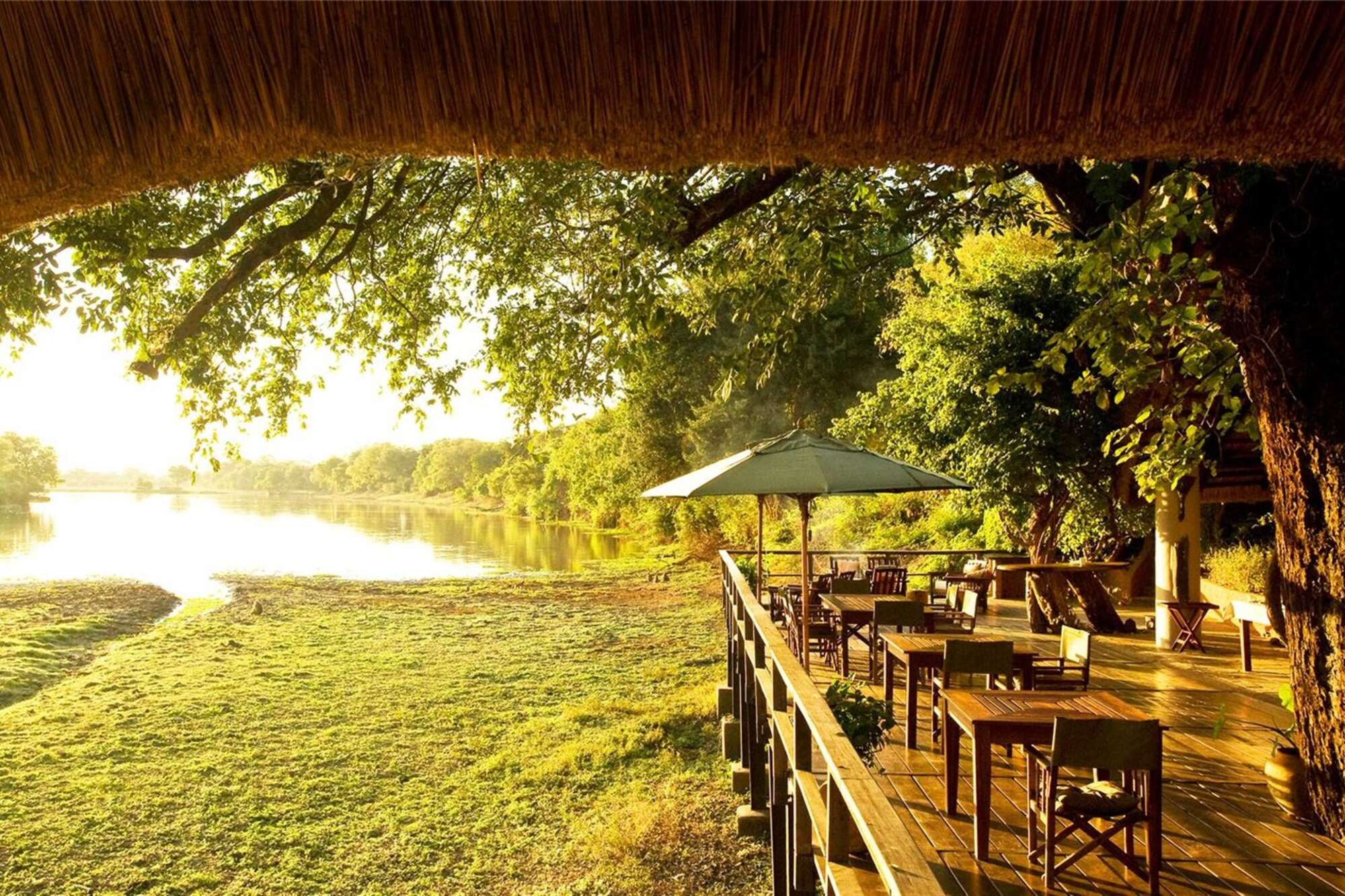
Kapani Lodge
Kapani Lodge is now the main office base for Norman Carr Safaris, one of the Luangwa's oldest safari operations.
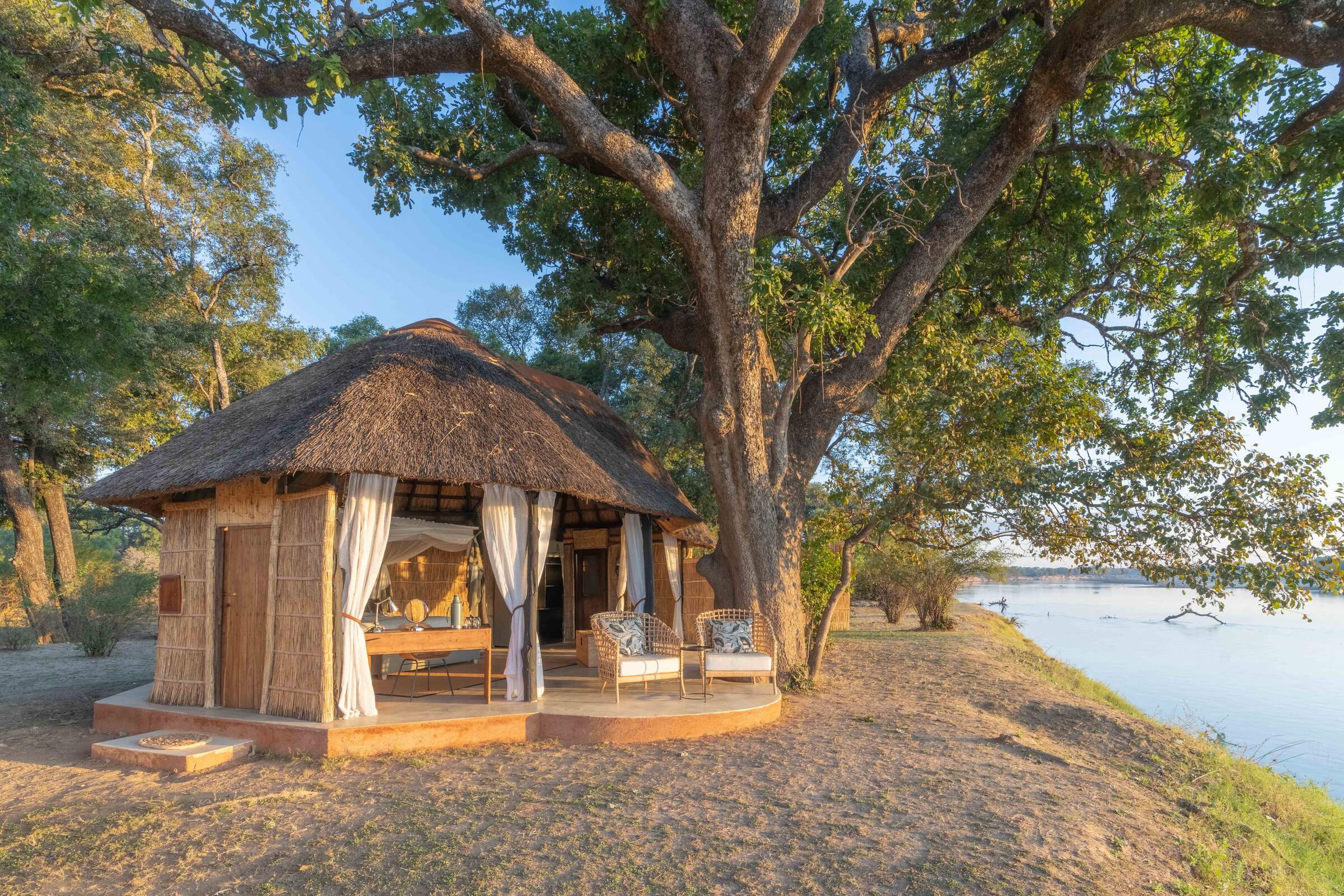
Mchenja Bushcamp
Set in a shady ebony grove on the banks of the Luangwa, Mchenja is a smart tented bushcamp. It combines well with Kakuli and Nsolo – its sister camps with a focus on walking safaris.
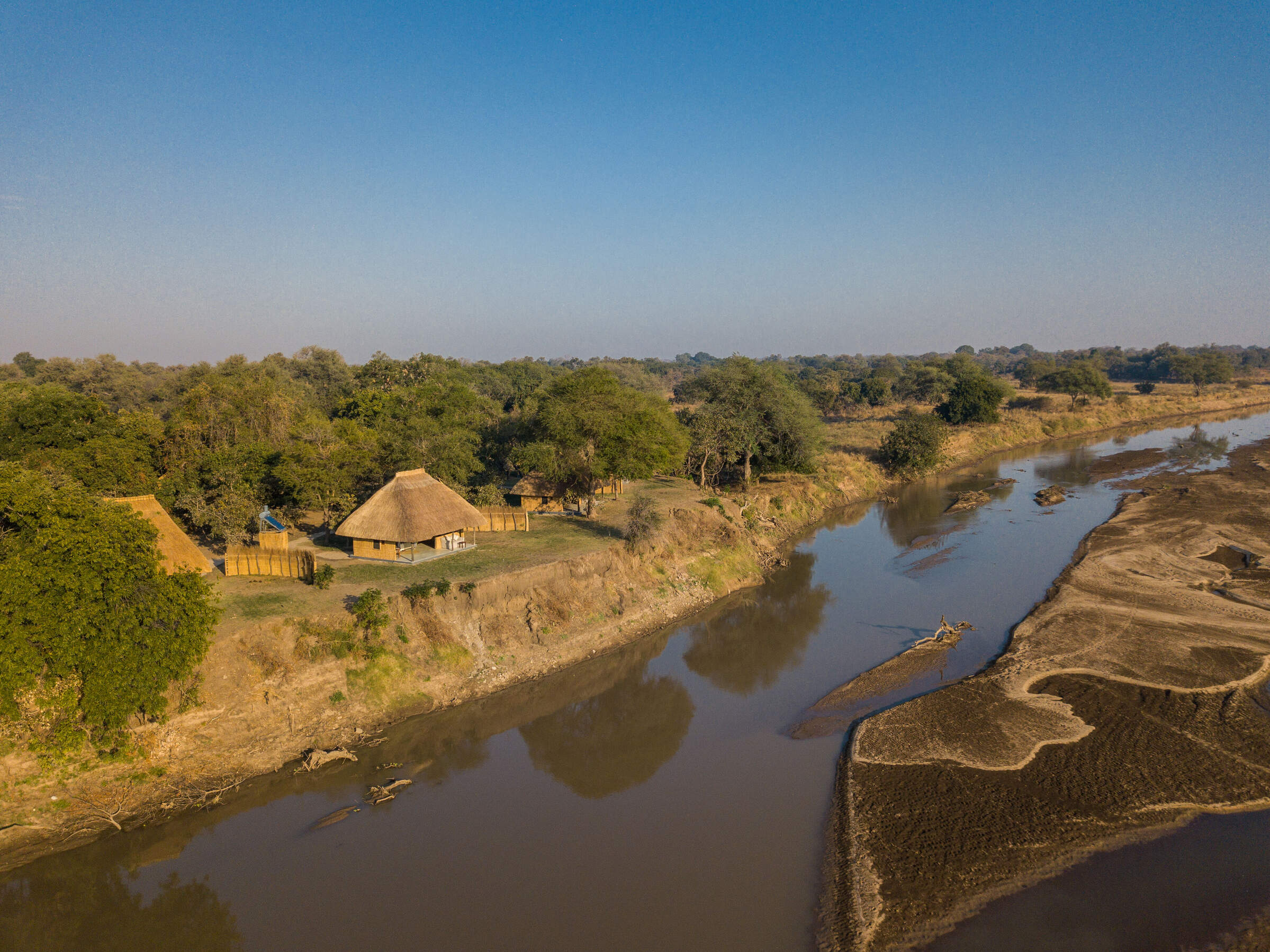
Kakuli Bushcamp
Beside the Luangwa River, Kakuli is a comfortable tented bushcamp offering 4WD safaris and walking safaris – the best of which are camp-to-camp walks linking Kakuli with its nearby sister camps.
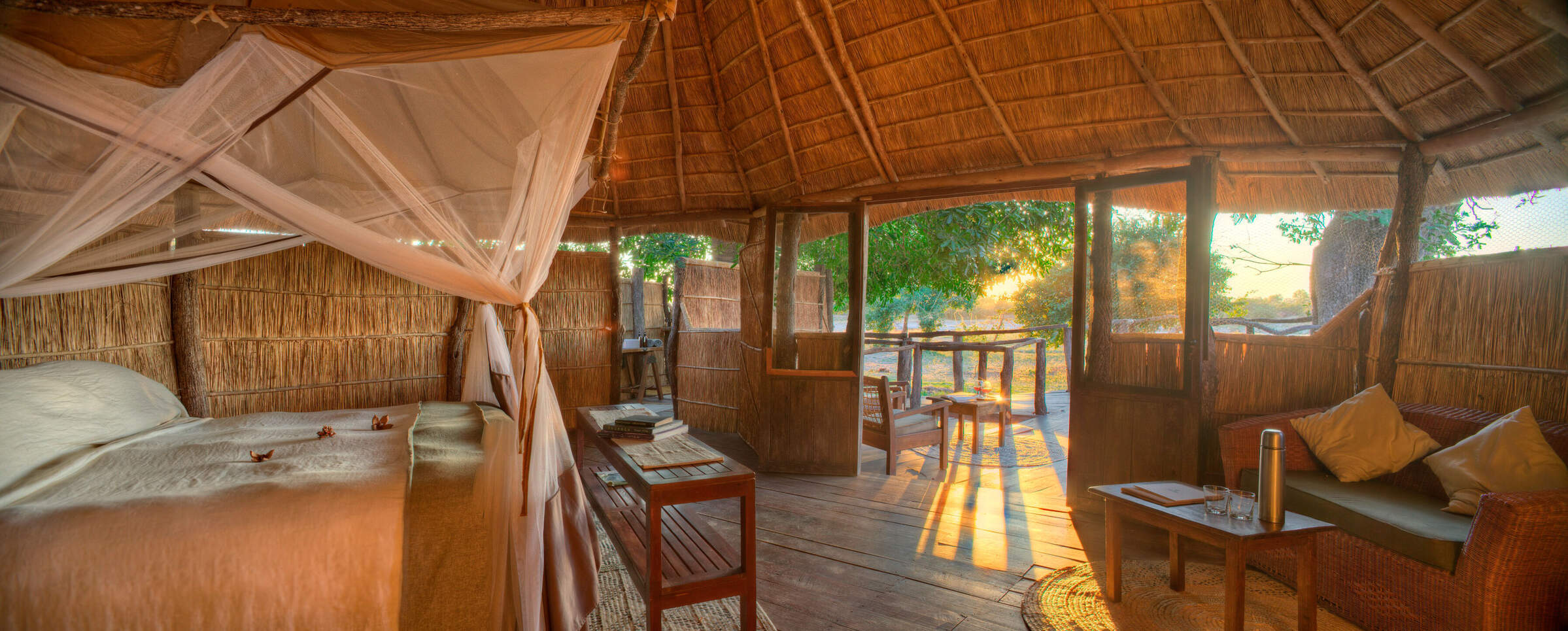
Nsolo Bushcamp
Nsolo is a small, comfortable bushcamp overlooking one or two pools in the usually dry Luwi riverbed. It concentrates on walking safaris in an interesting and diverse area, led by a knowledgeable guide.
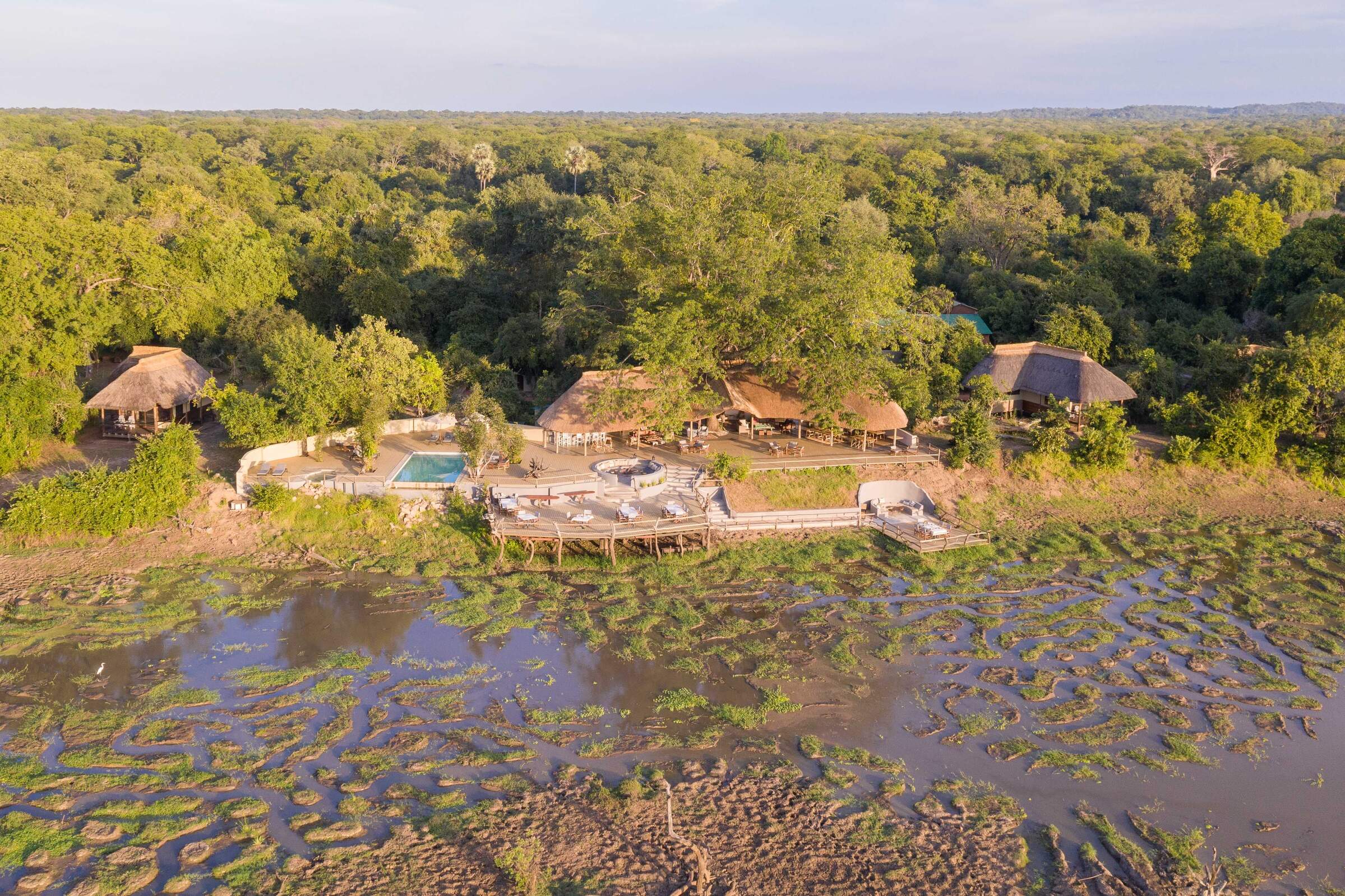
Kafunta River Lodge
Kafunta is a laid-back, friendly and good-value lodge on the outskirts of South Luangwa National Park.
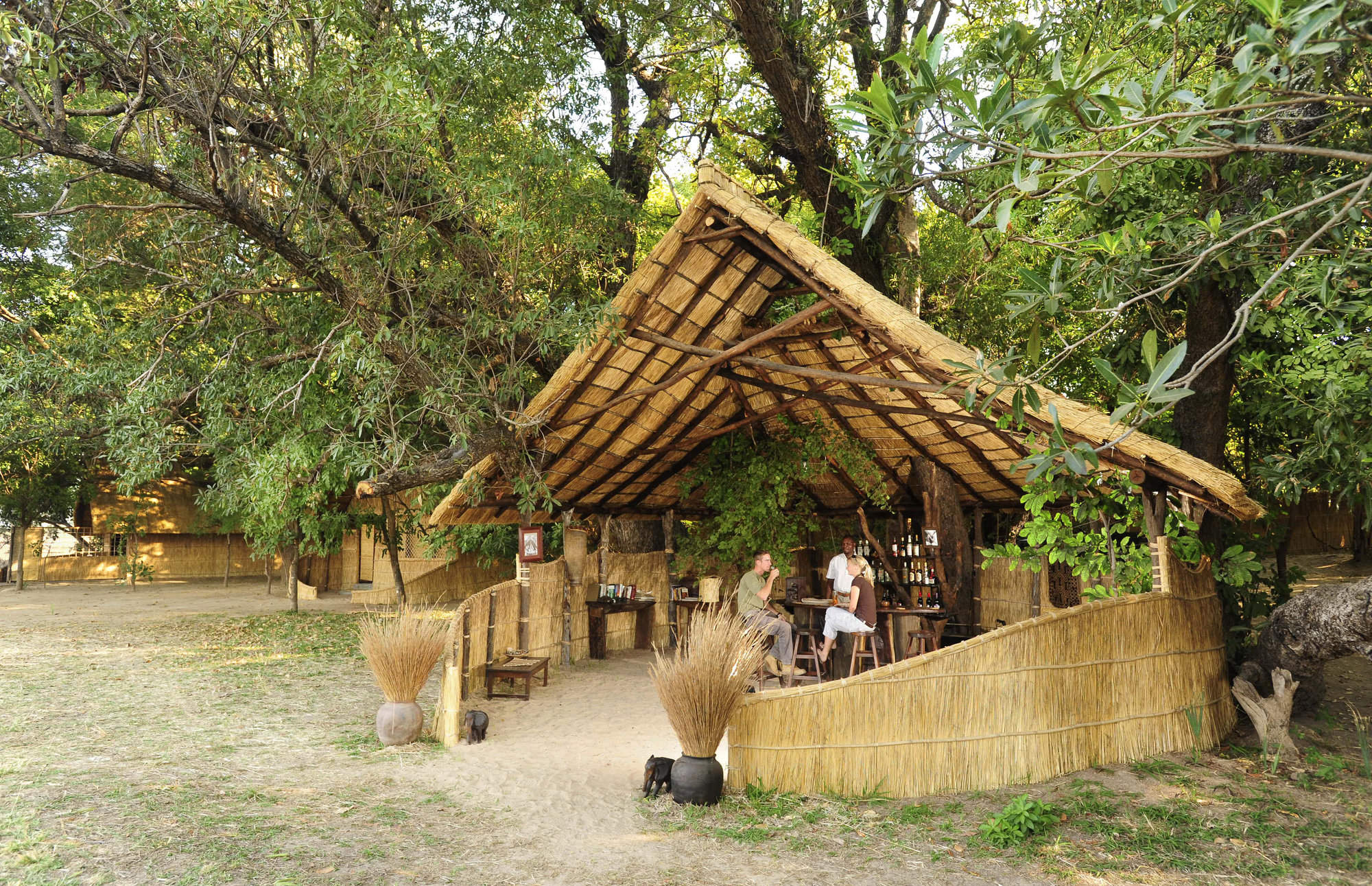
Luwi Bushcamp
In a remote part of the South Luangwa National Park, Luwi is a rustic bushcamp whose emphasis is on walking safaris with great guiding and a chance of seeing some rarely seen and elusive antelope.
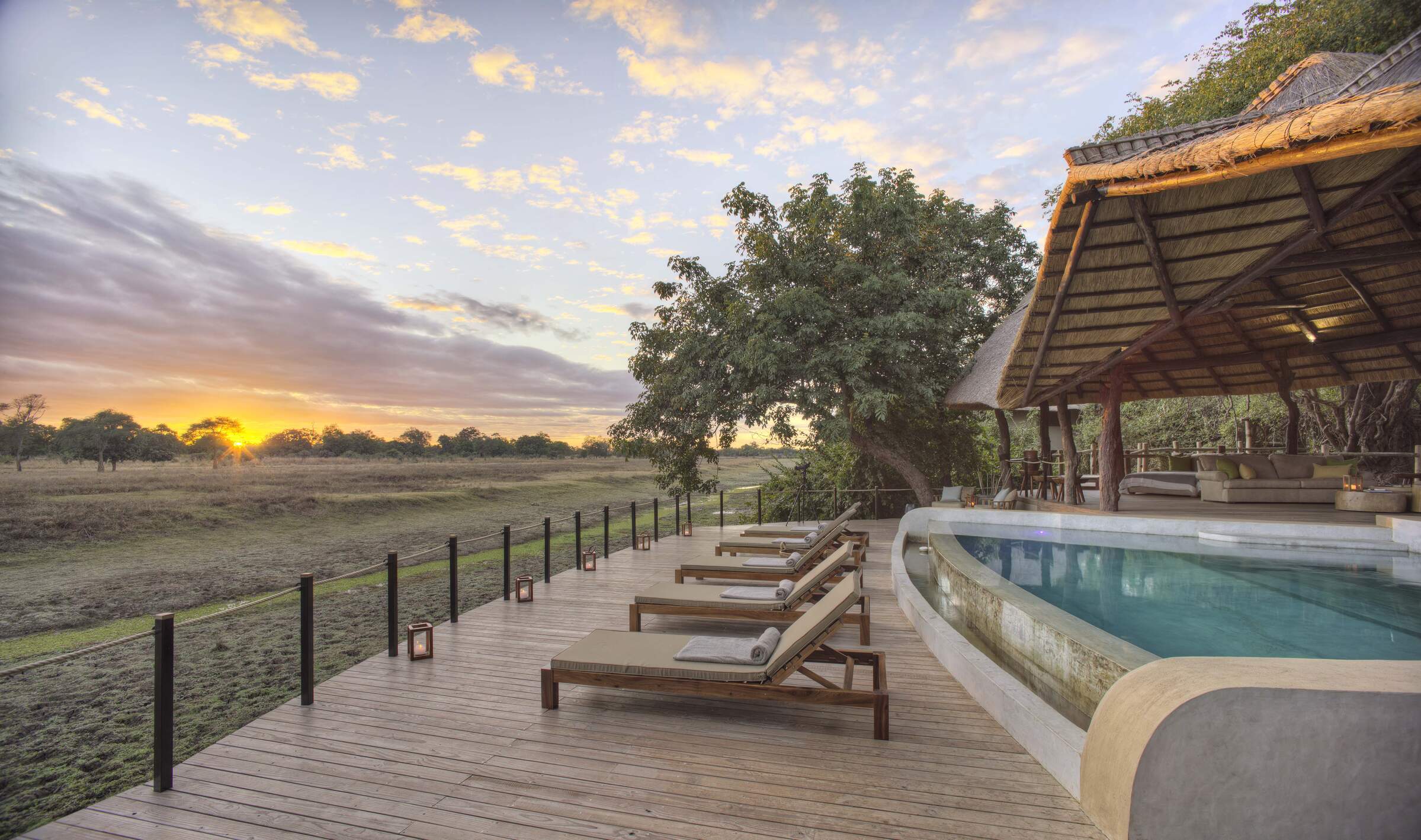
Lion Camp
Lion Camp is an established and comfortable camp with a swimming pool, located near to the game-rich Lion Plain in the northern part of South Luangwa National Park.
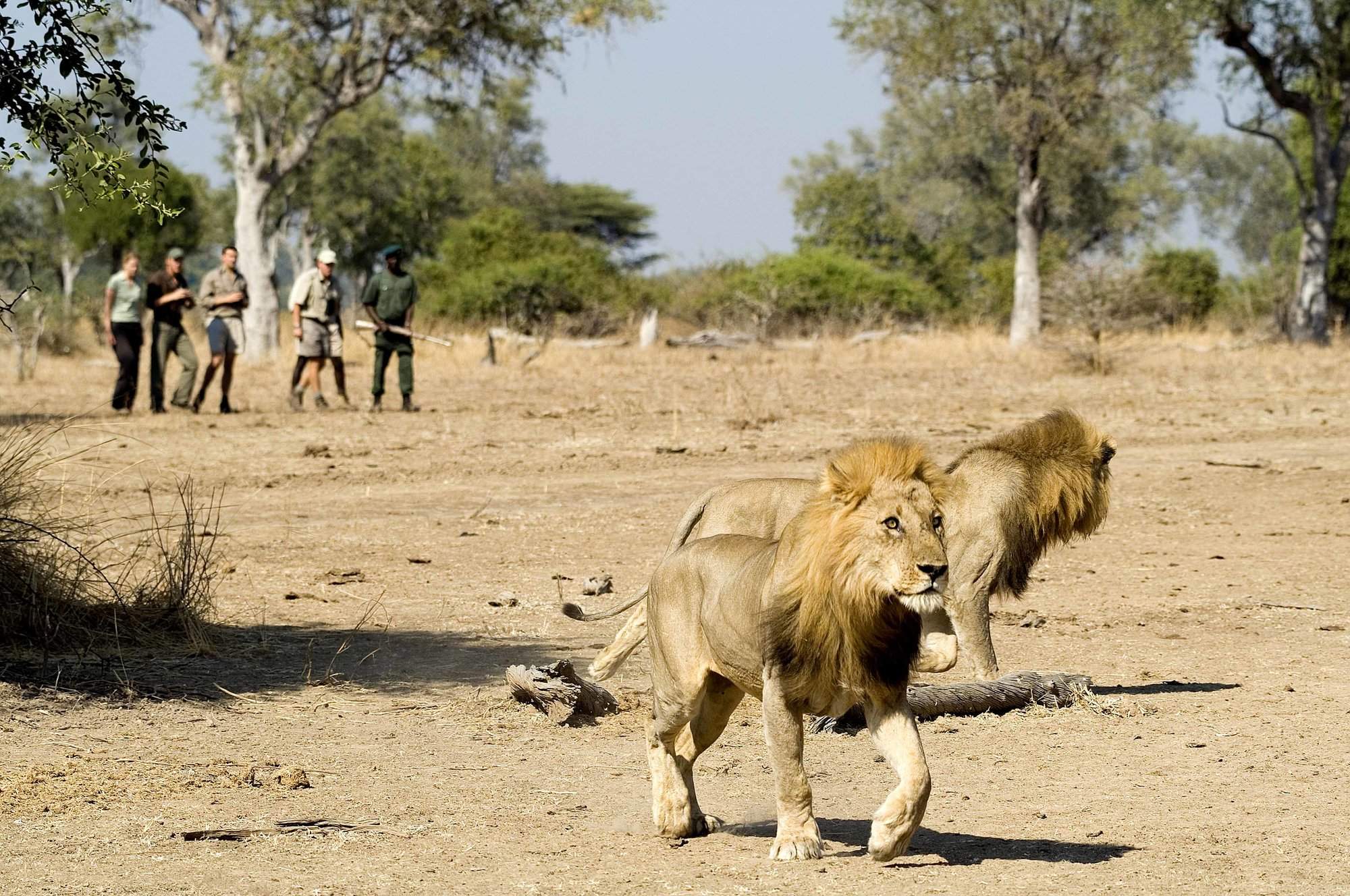
Robin Pope mobile
RPS mobile safari camps are at the heart of their set-itinerary walking safaris in South Luangwa National Park, which start and finish at a permanent camp.
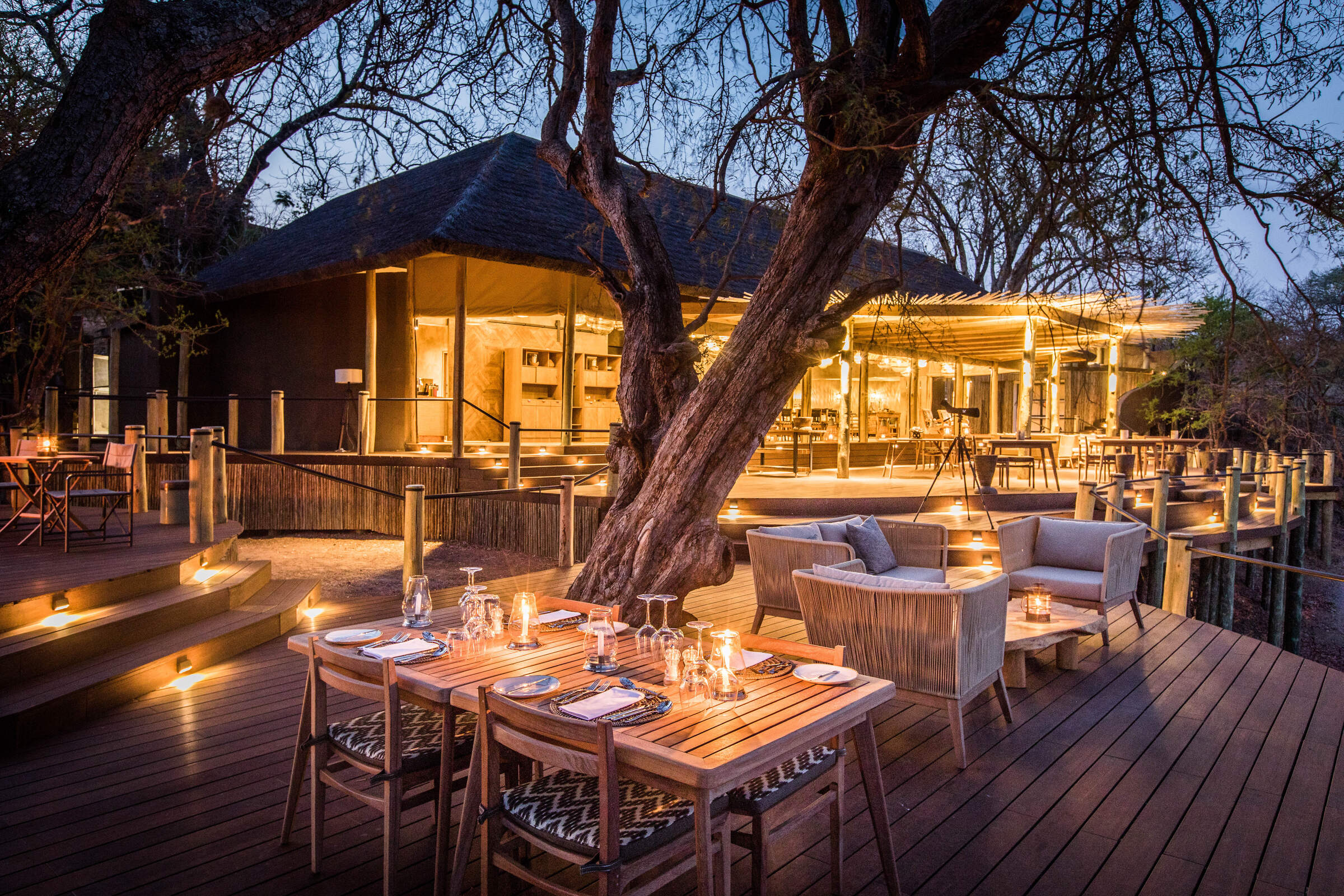
Puku Ridge
Puku Ridge is a luxurious designer camp set in a stunning location, high on a hill overlooking a floodplain within South Luangwa. Explore from here on 4WD safaris and walks.
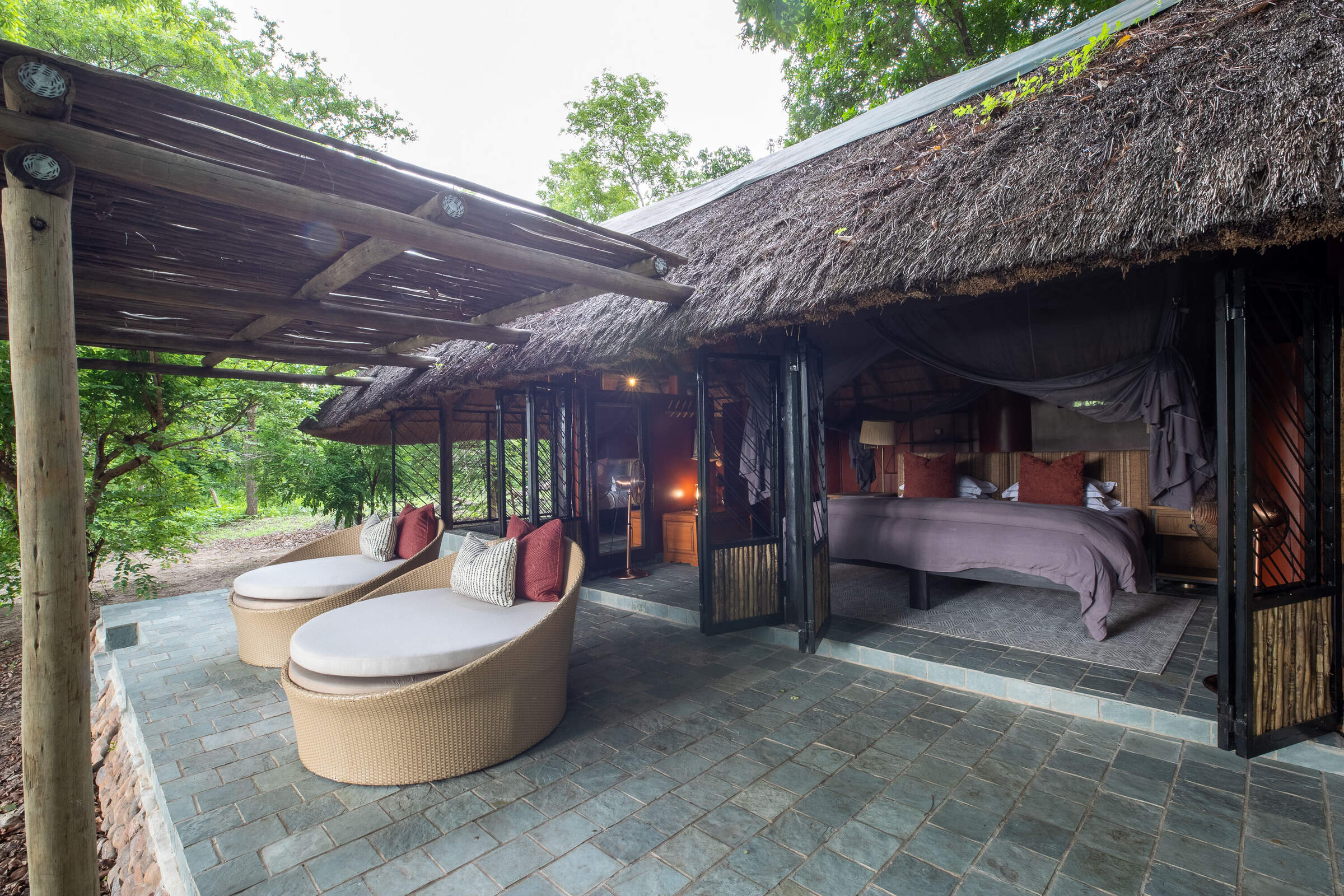
Kapamba Bushcamp
In the remote far south of South Luangwa National Park, Kapamba is a small and very comfortable bushcamp offering good walks and game drives.
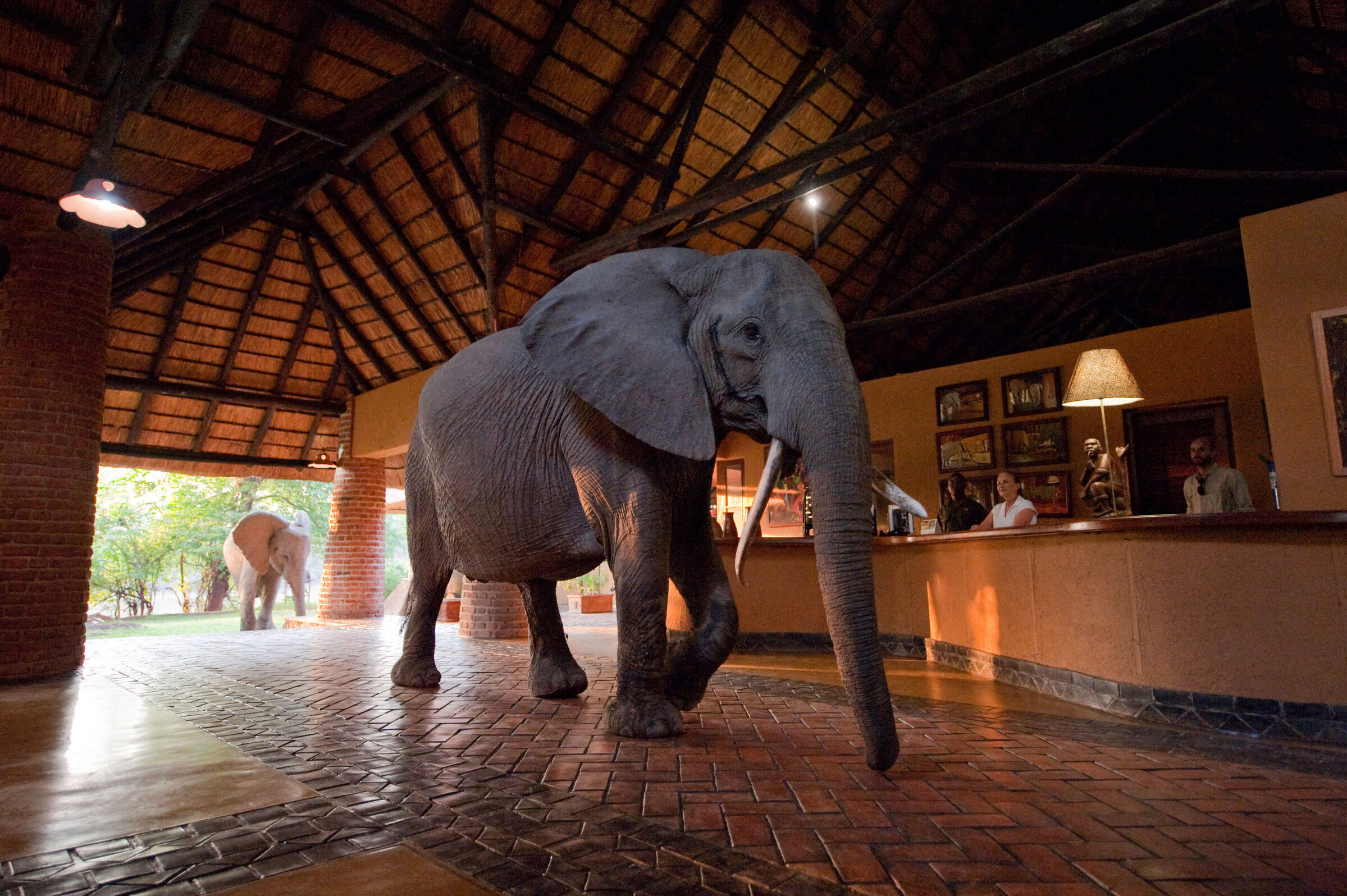
Mfuwe Lodge
In a game-rich area close to the South Luangwa’s main Mfuwe Gate, Mfuwe Lodge is relatively large by park standards, but it’s stylish, modern and family friendly.
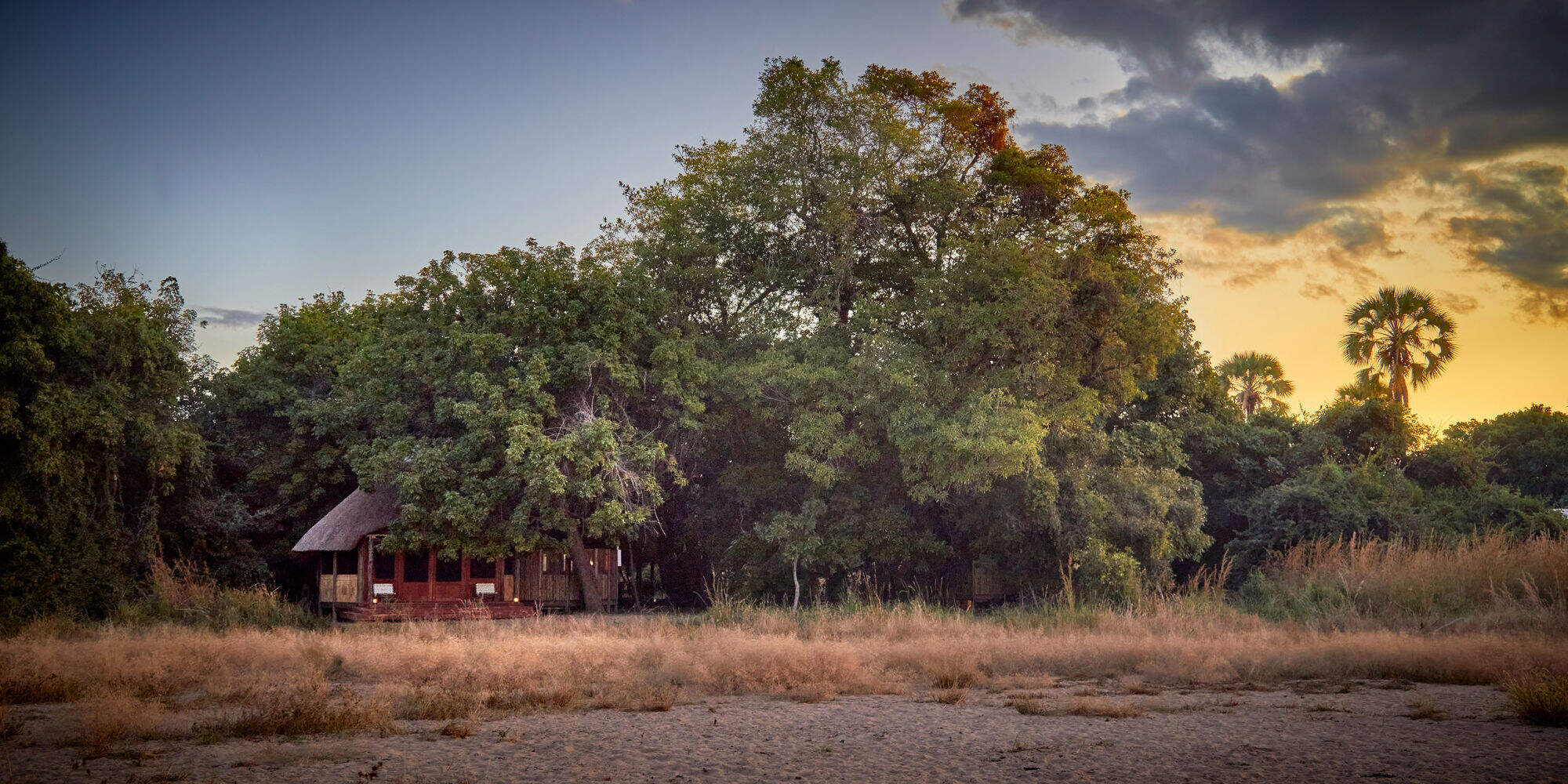
Kuyenda Bushcamp
Kuyenda Bushcamp is a classic bushcamp with particularly delightful hosts and offers top-class walking safaris in South Luangwa National Park.
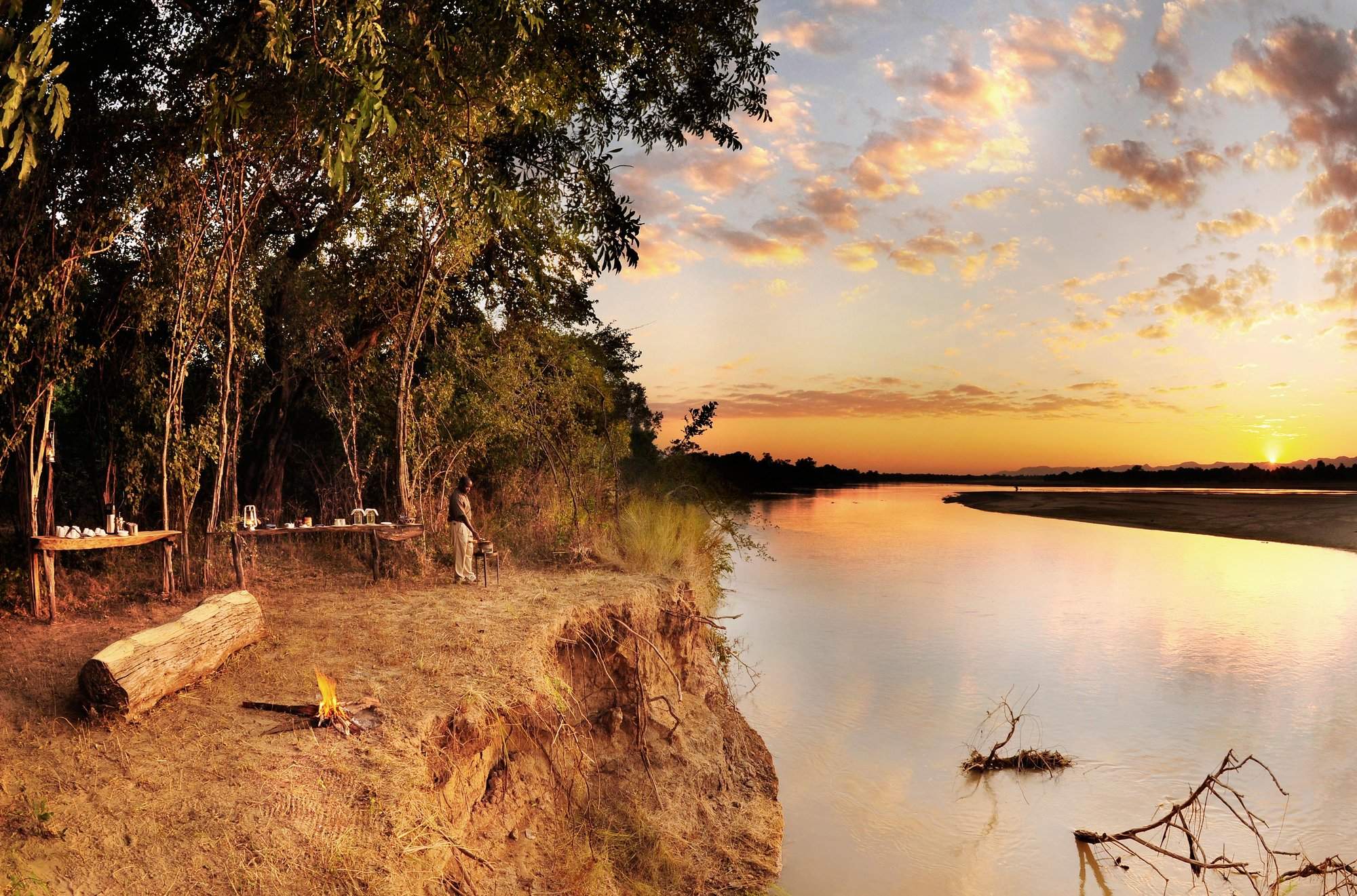
Bilimungwe Bushcamp
A smart bushcamp with four very spacious chalets, Bilimungwe offers interesting walking safaris in pretty riverine woodland, as well as day and night safari drives.
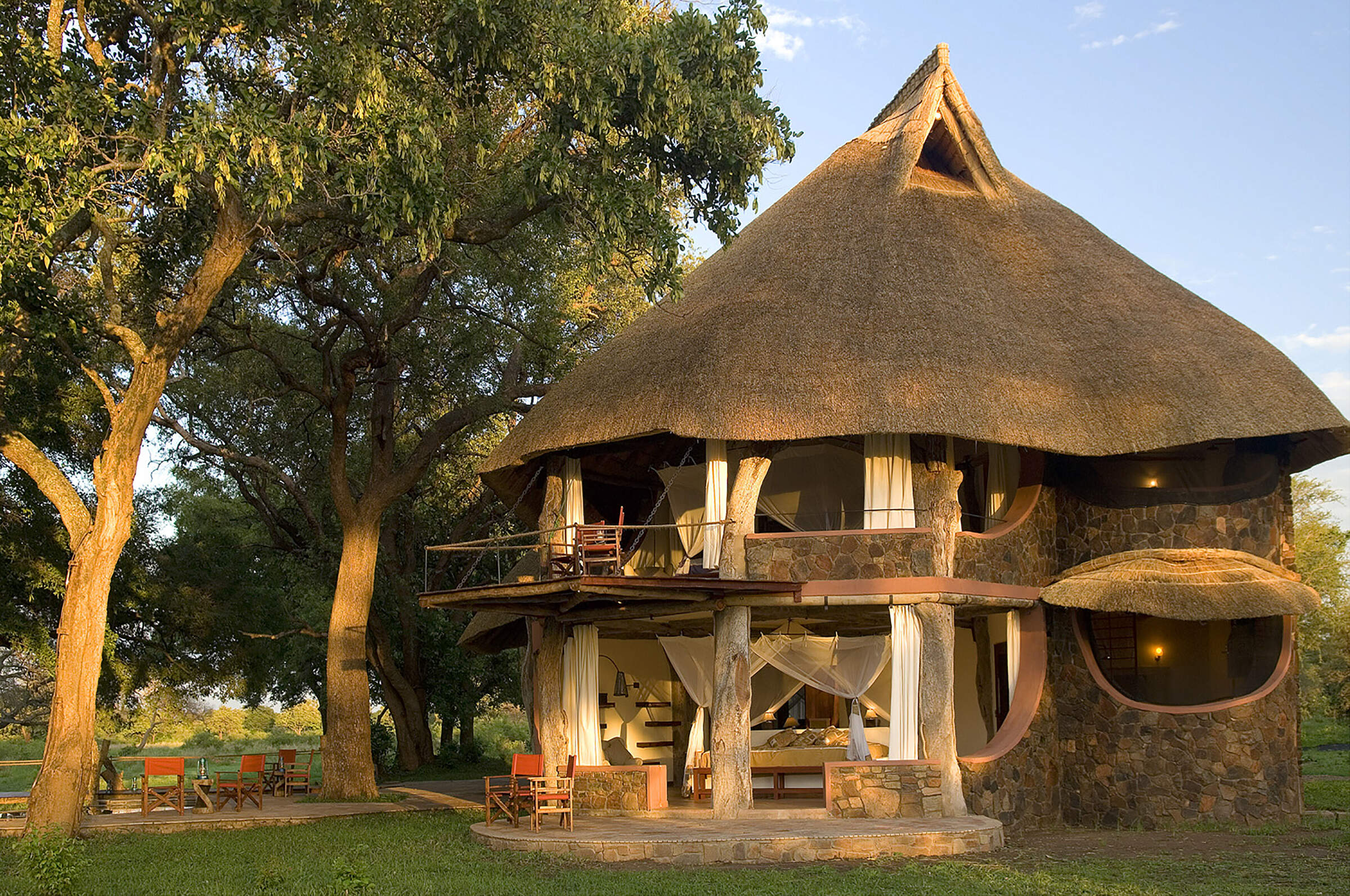
Luangwa Safari House
Luangwa Safari House is a vast and very smart four-bedroom house specifically designed for families and small groups, and offering an exclusive and flexible safari experience.
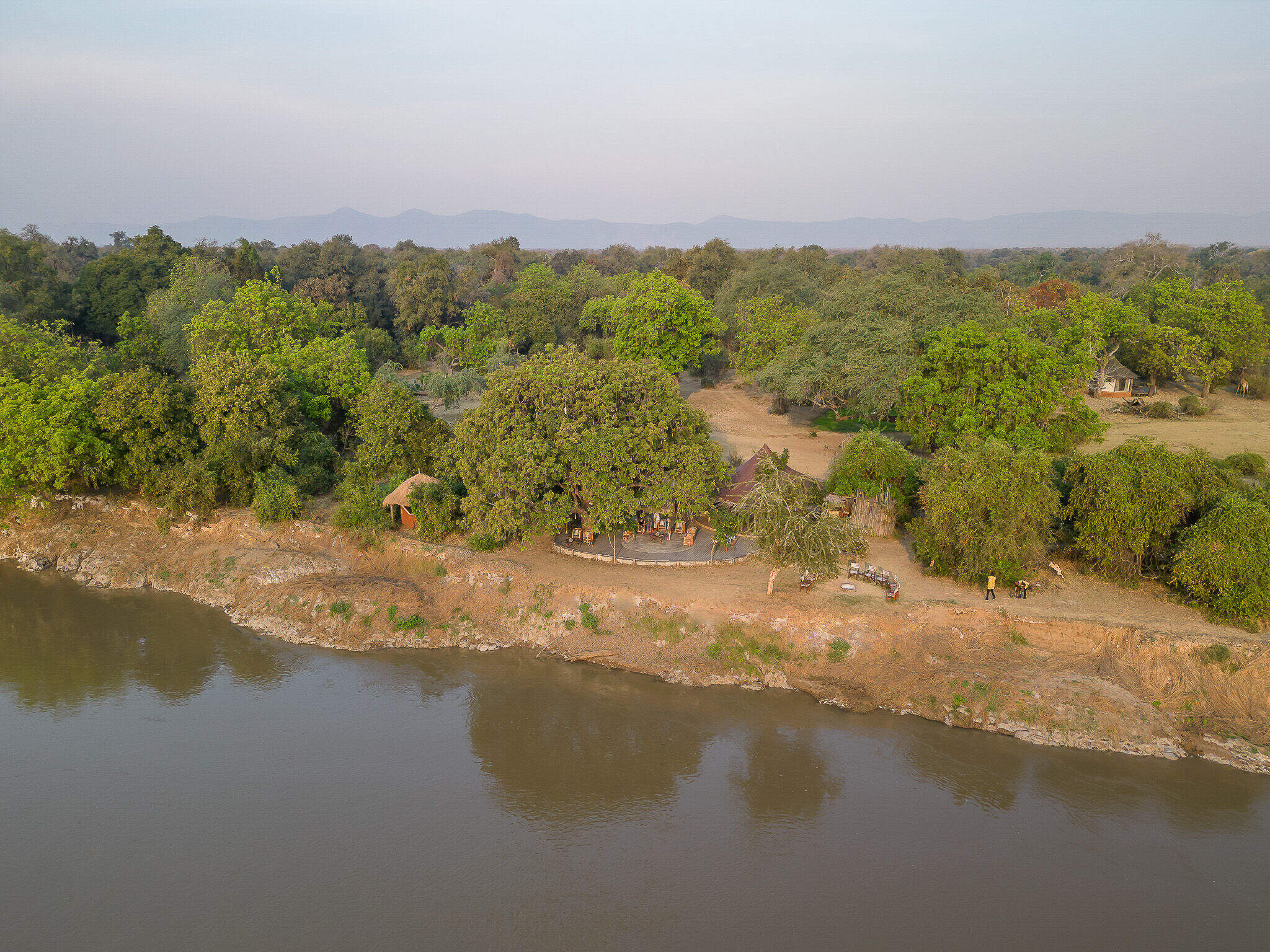
Three Rivers Camp
In the remote far south of South Luangwa National Park, Three Rivers Lodge sits at the confluence of three of the valleys rivers.
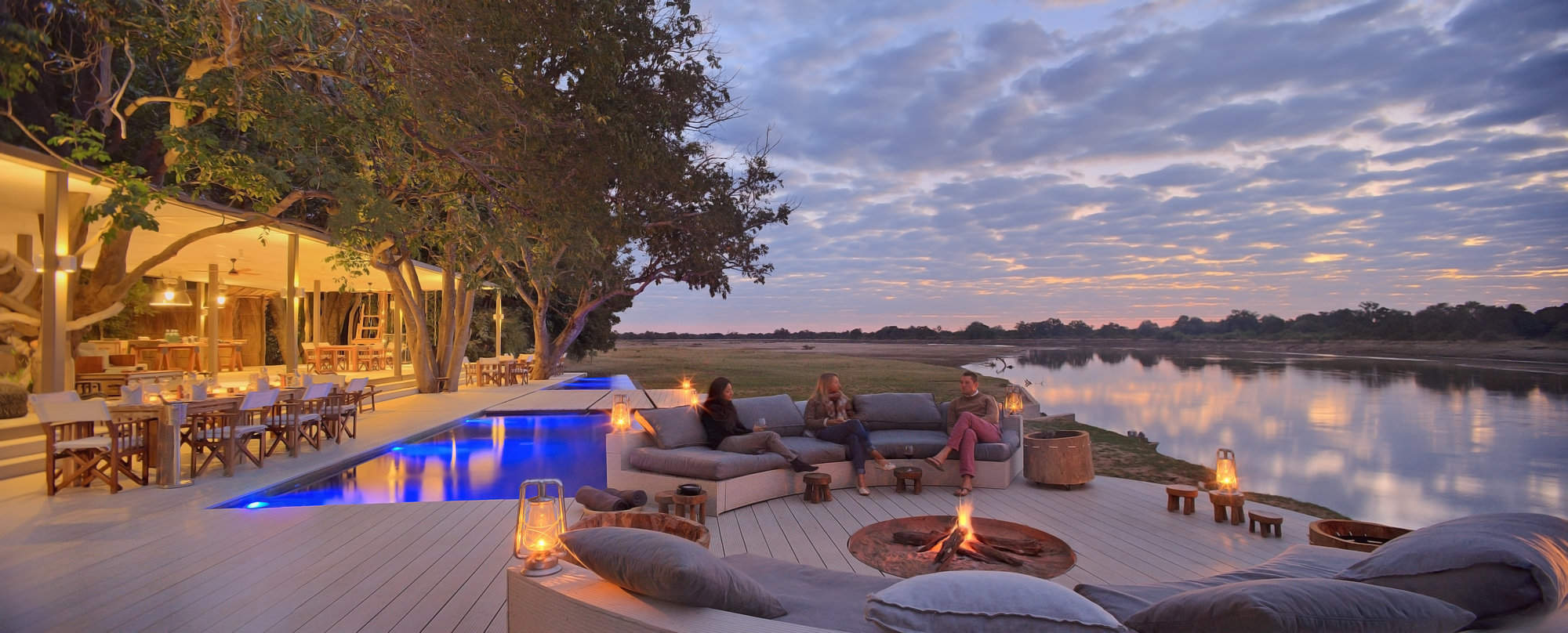
Chinzombo
Opened in early June 2013, Chinzombo offers luxurious and stylish accommodation with very high levels of service and excellent guiding.
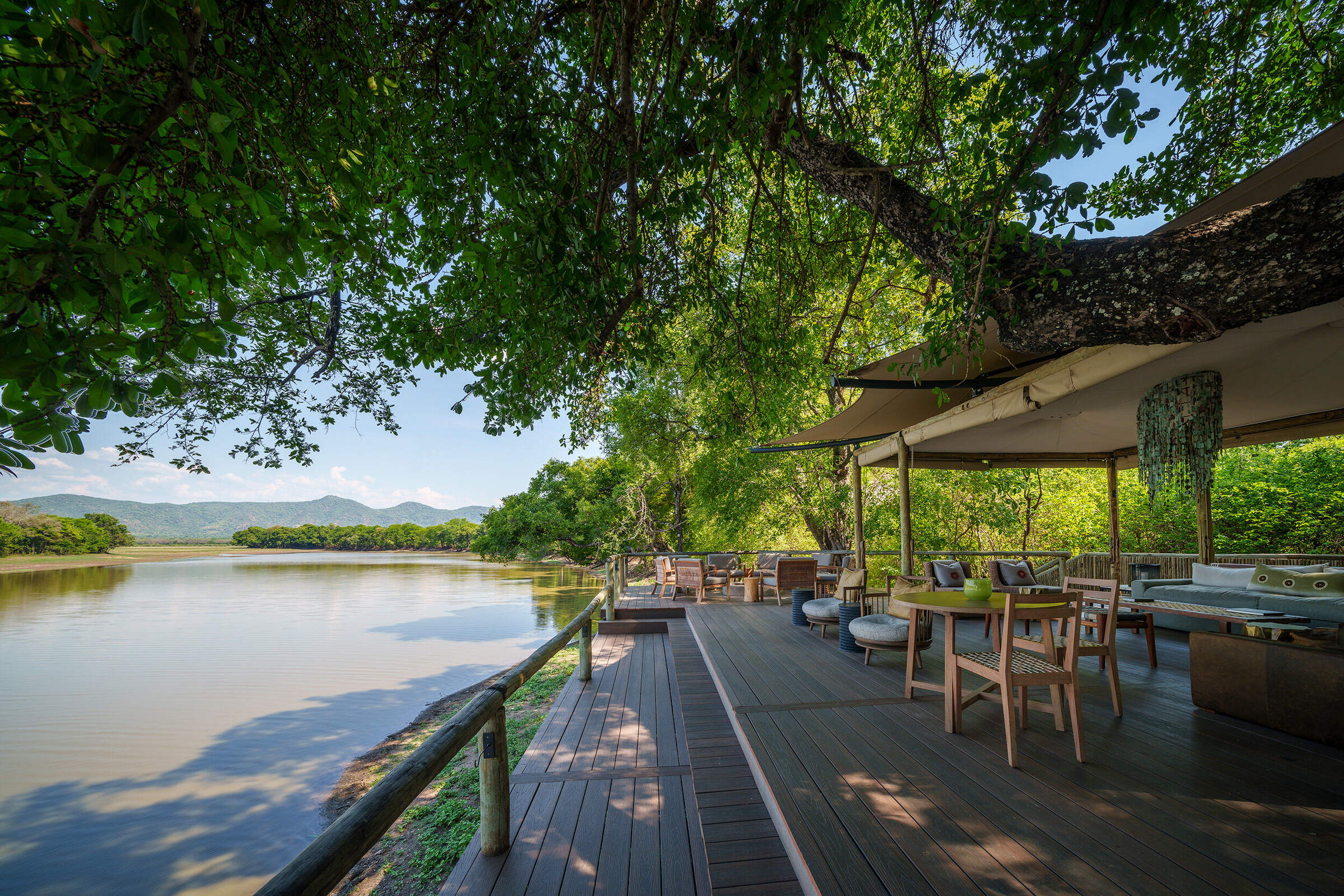
Chindeni
Chindeni Bushcamp is a very modern and minimalist camp, which is a far cry from your traditional bushcamp and unlike most of the other camps in South Luangwa.
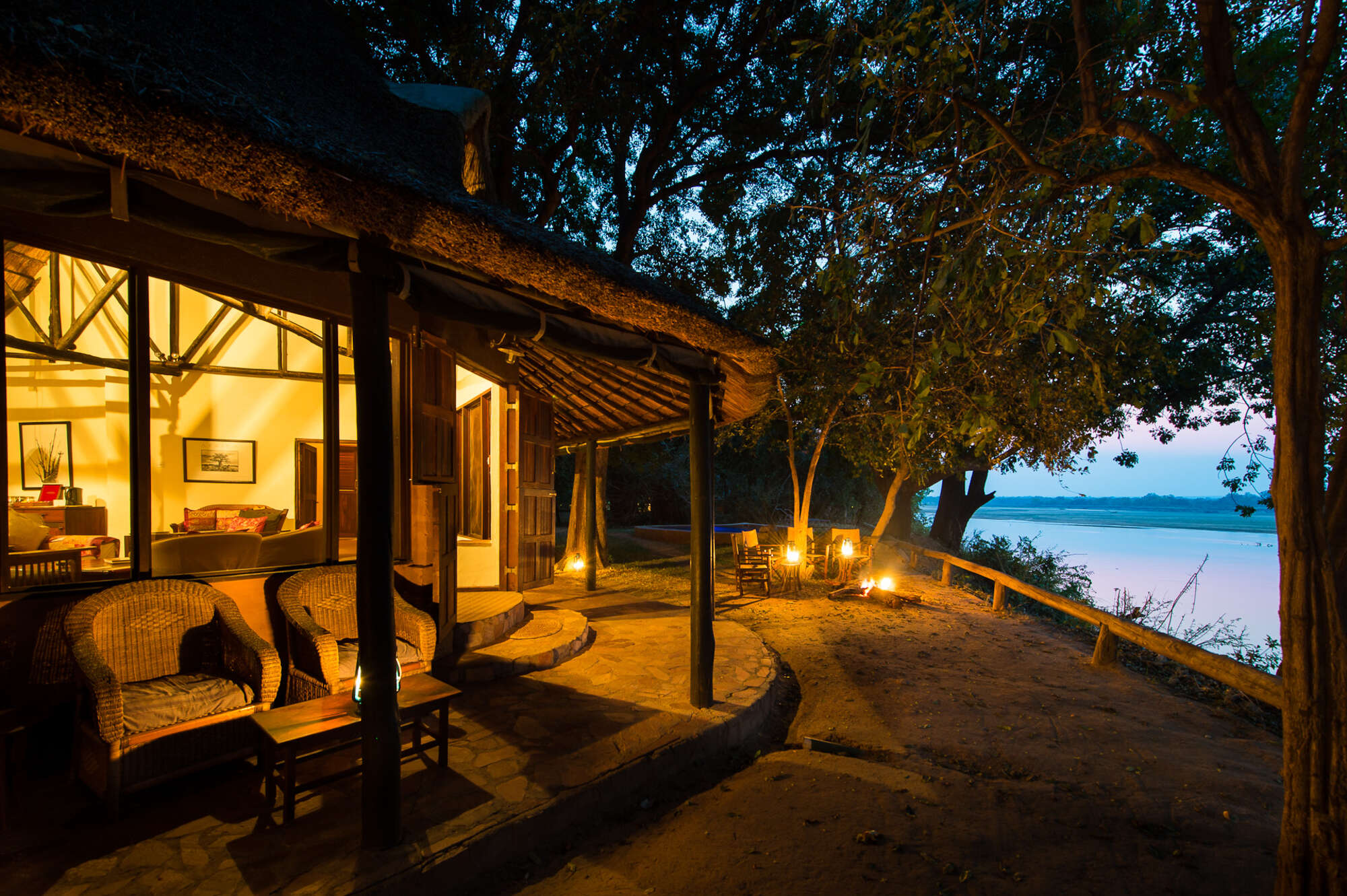
Robin's House
With your own expert guide, private vehicle, chef and valet, the two-bedroom Robin's House offers an exclusive, flexible safari experience – and is open year round.
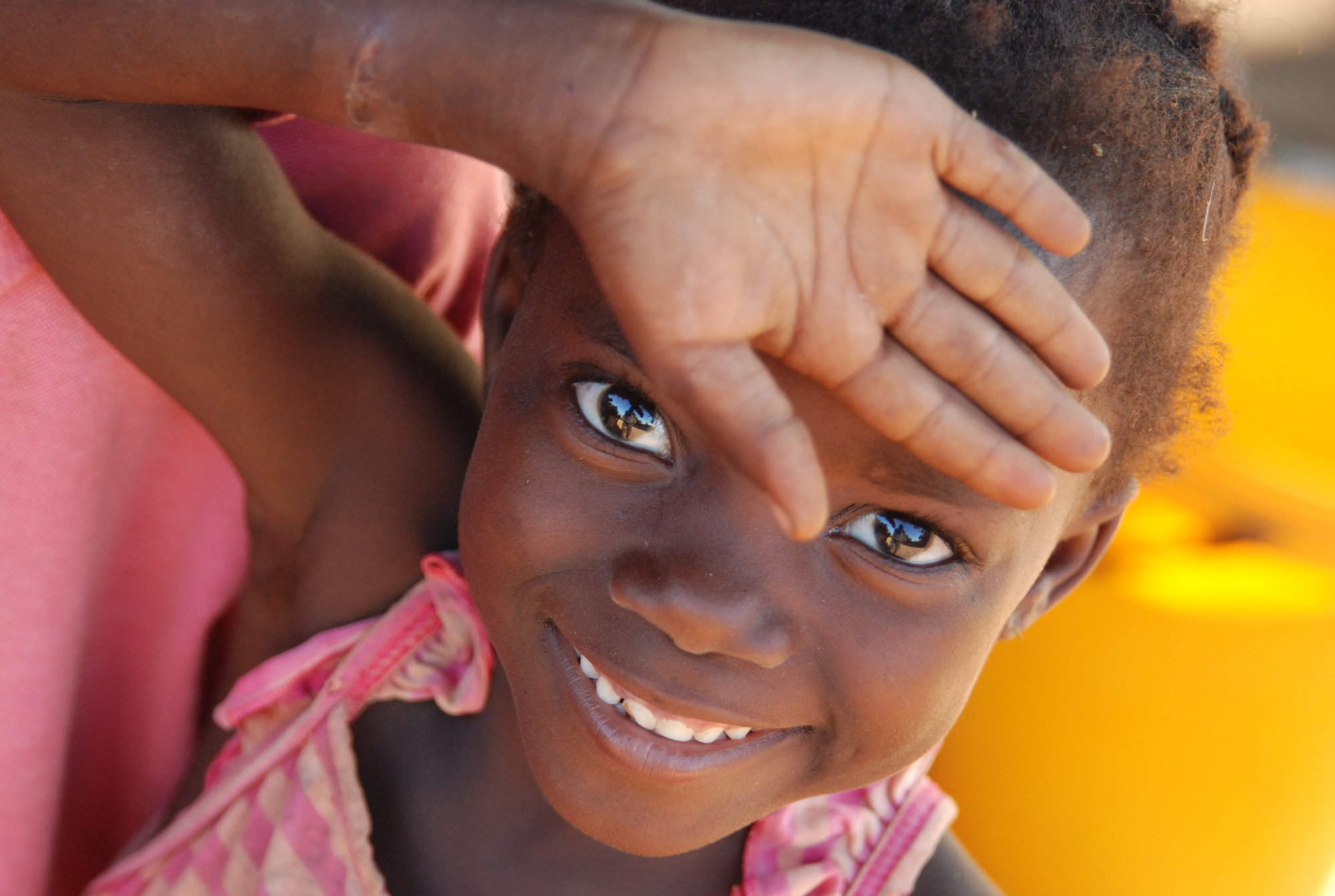
Kawaza Village
Kawaza Village – beside the South Luangwa National Park, offers guests the rare opportunity to appreciate local village life. Visit for a few hours or stay overnight.
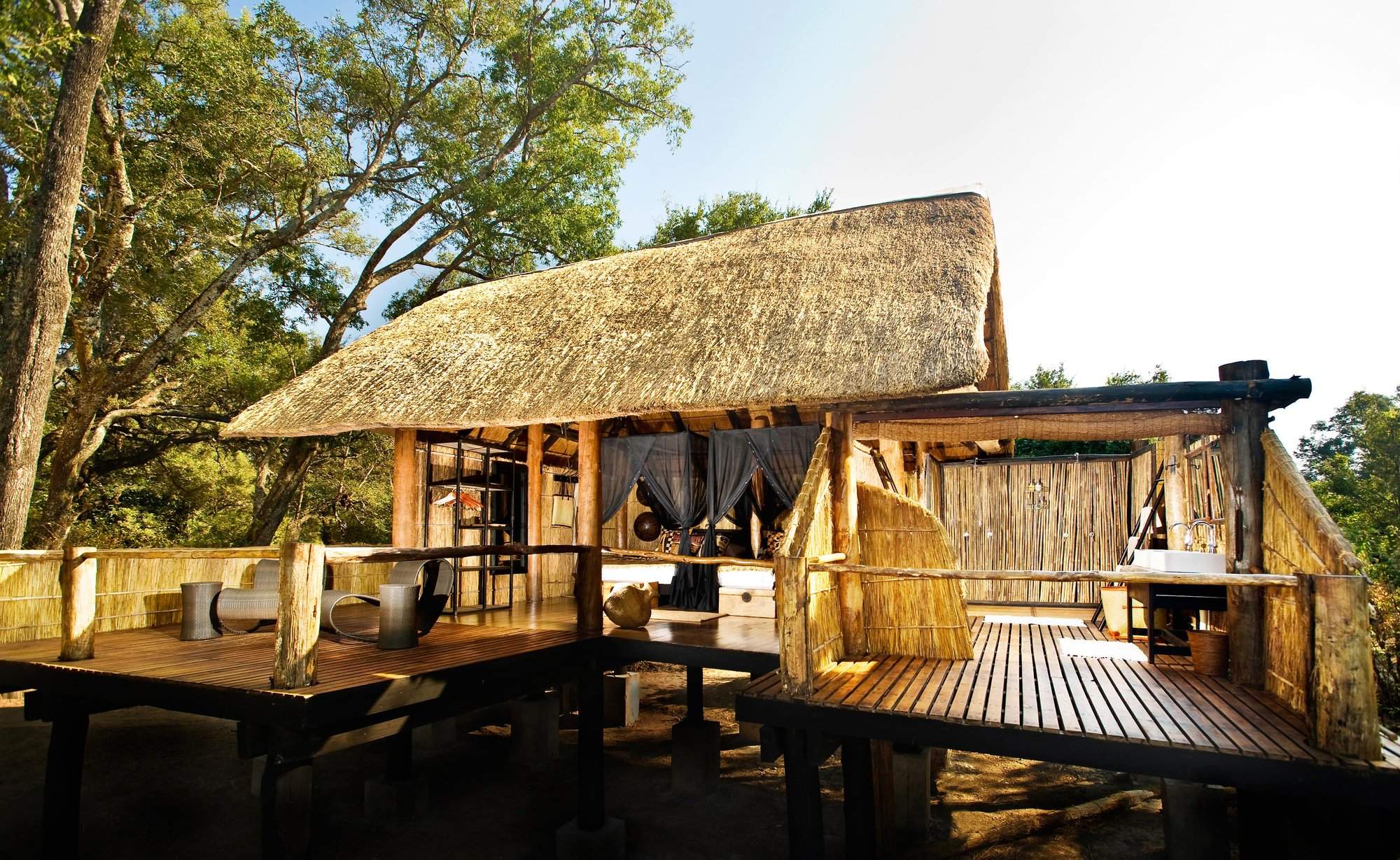
Chamilandu Bushcamp
A comfortable little bushcamp, Chamilandu has a picturesque setting by the Luangwa River, in an area with a range of habitats to explore on foot and by 4WD.
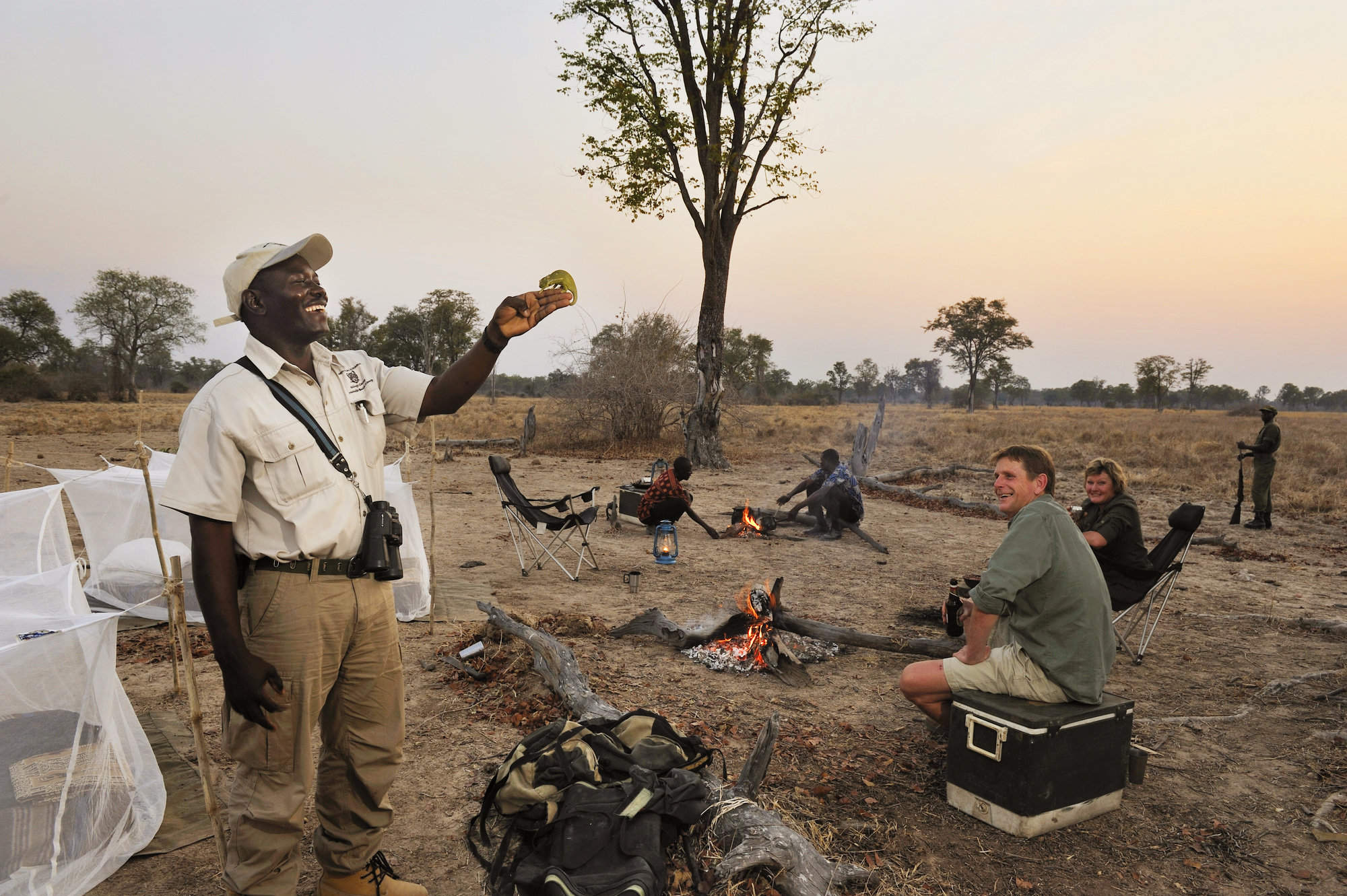
Mwamba Camp-out
The Mwamba-Camp Out allows you to have an incredibly adventurous night in the bush, sleeping under mosquito nets with activities led by some of the best guides in Zambia.
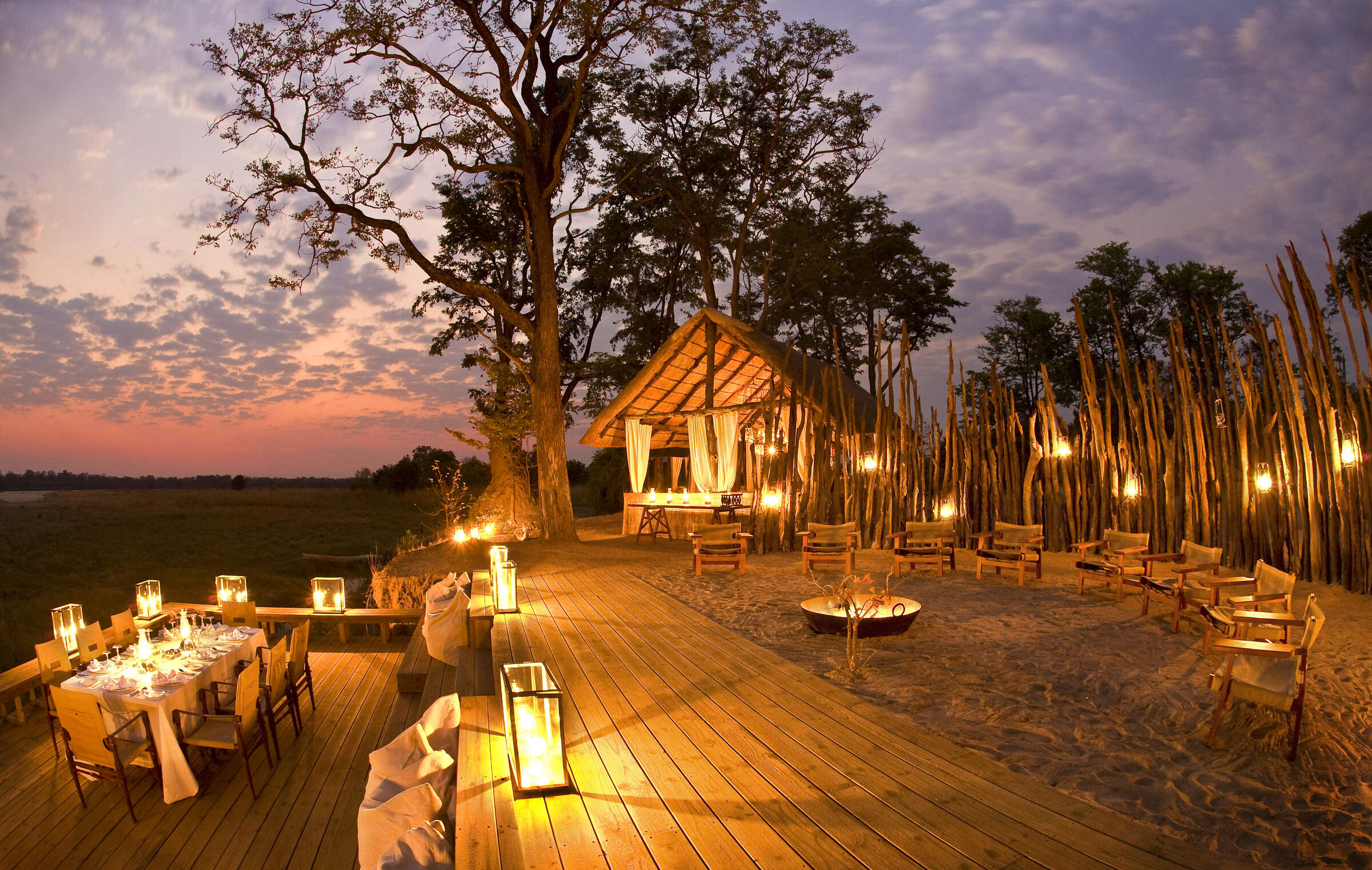
Zungulila
Zungulila is a small, comfortable tented bushcamp with an emphasis on walking safaris, in the remote southern section of the South Luangwa.
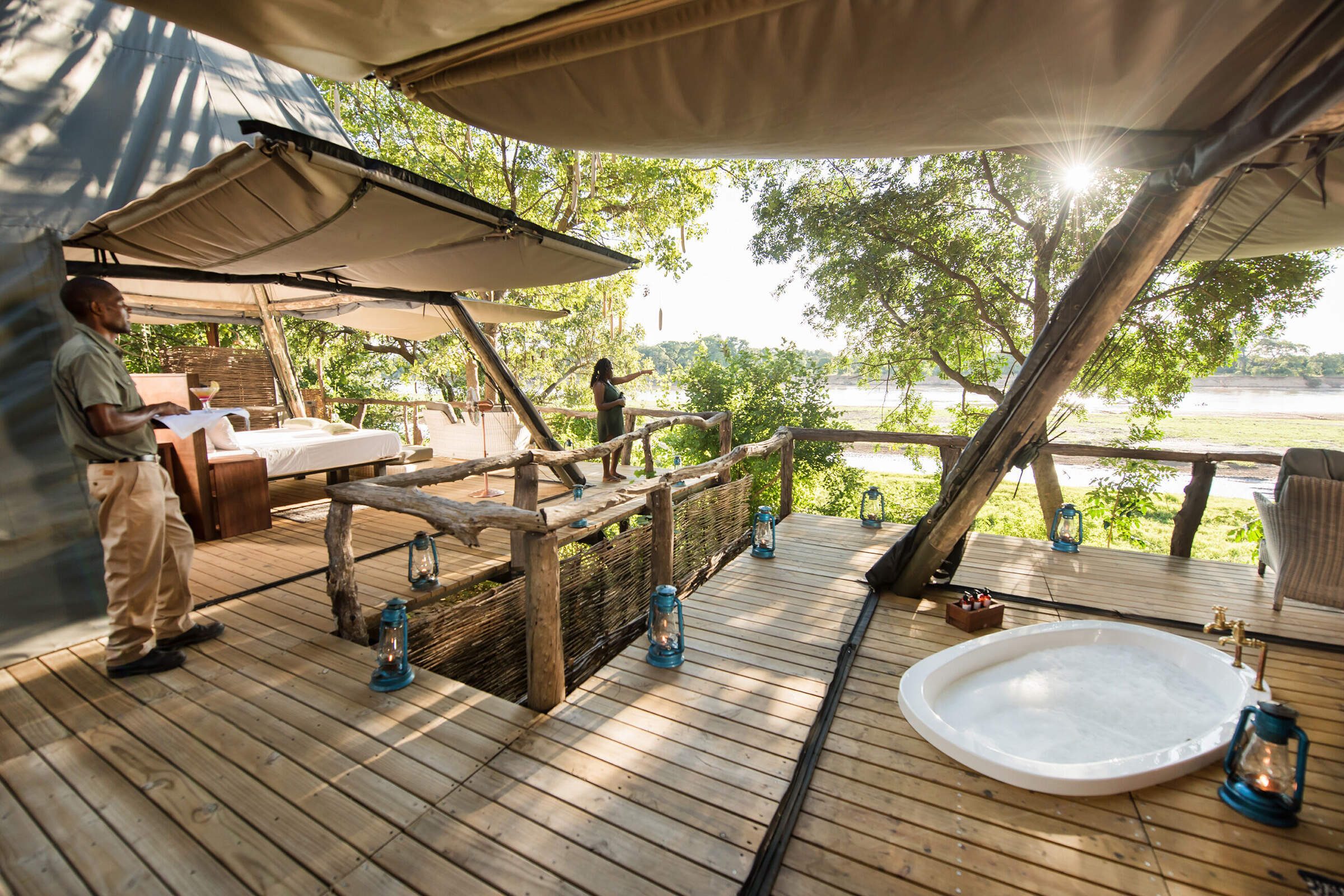
Shawa Luangwa
Opened in June 2021, Shawa Luangwa Camp is a small, intimate and rustic camp, with a good location in a remote section of the South Luangwa National Park.
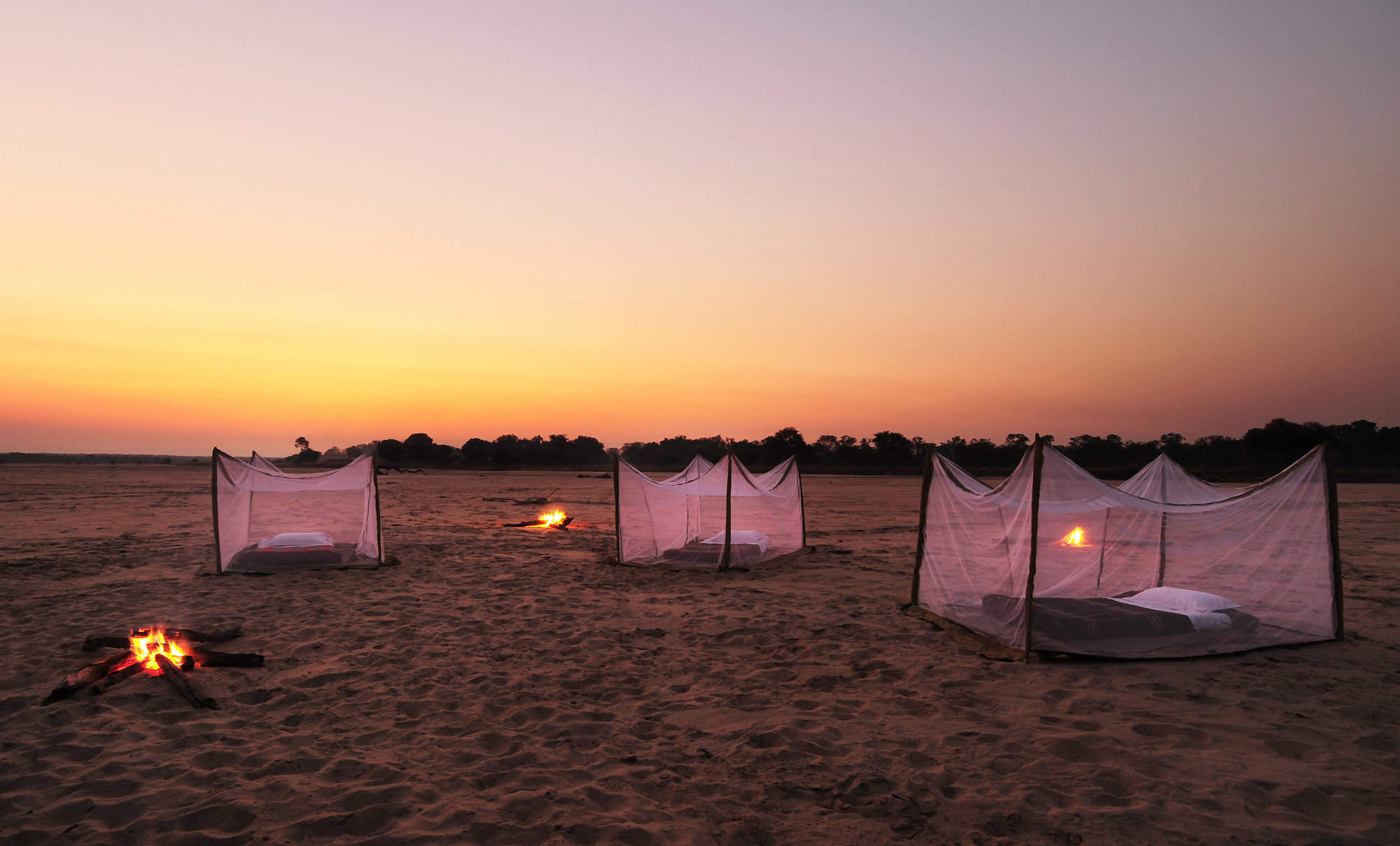
Luwi Riverbed Sleepout
For an adventurous night in South Luangwa National Park, come and sleep out in the bush, around a campfire, with an experienced guide and game scout.
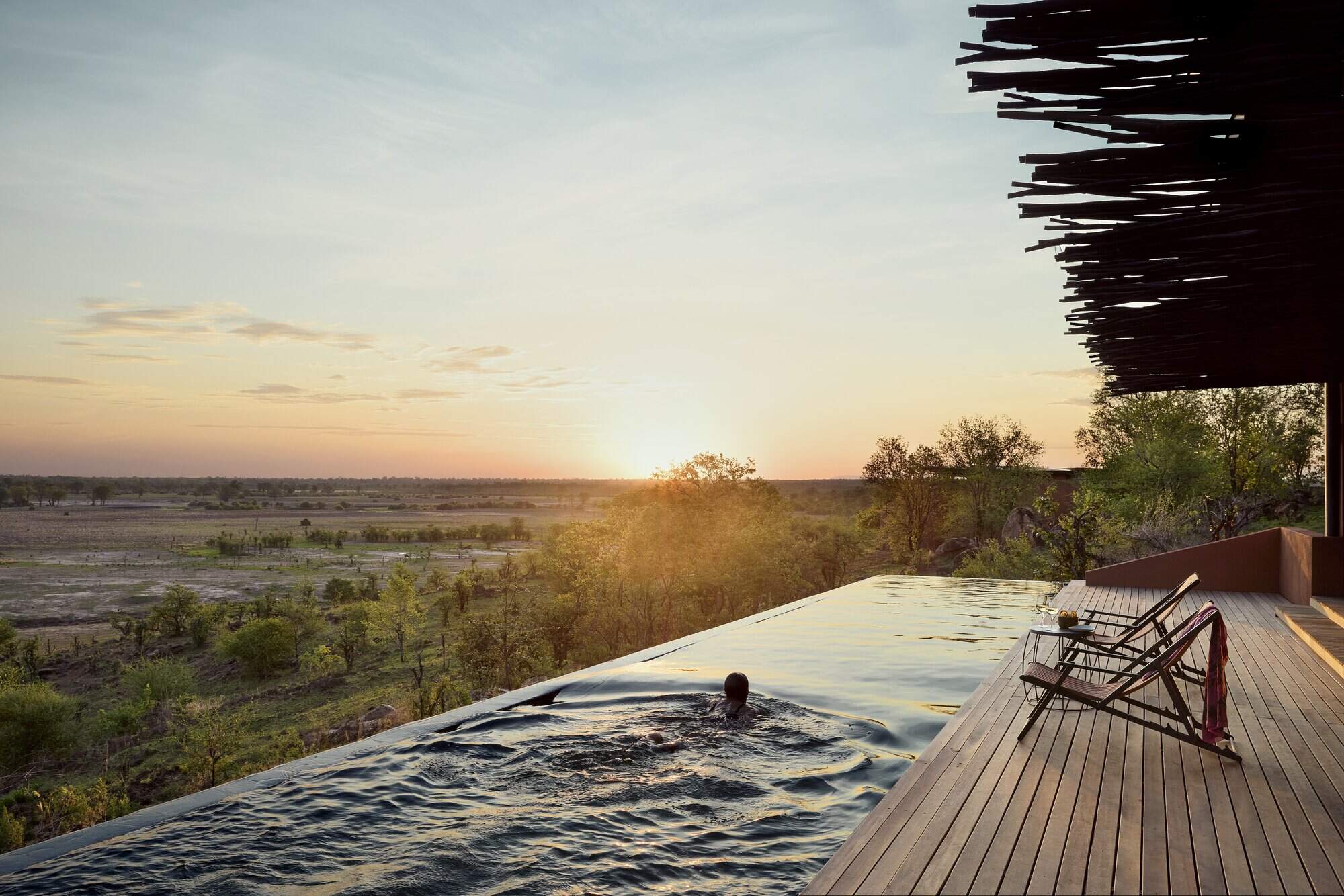
Chichele Lodge
Currently in the final stages of an extensive rebuild, Chichele Presidential Lodge stands high within the park, with superb views, and is due to reopen in early 2025.
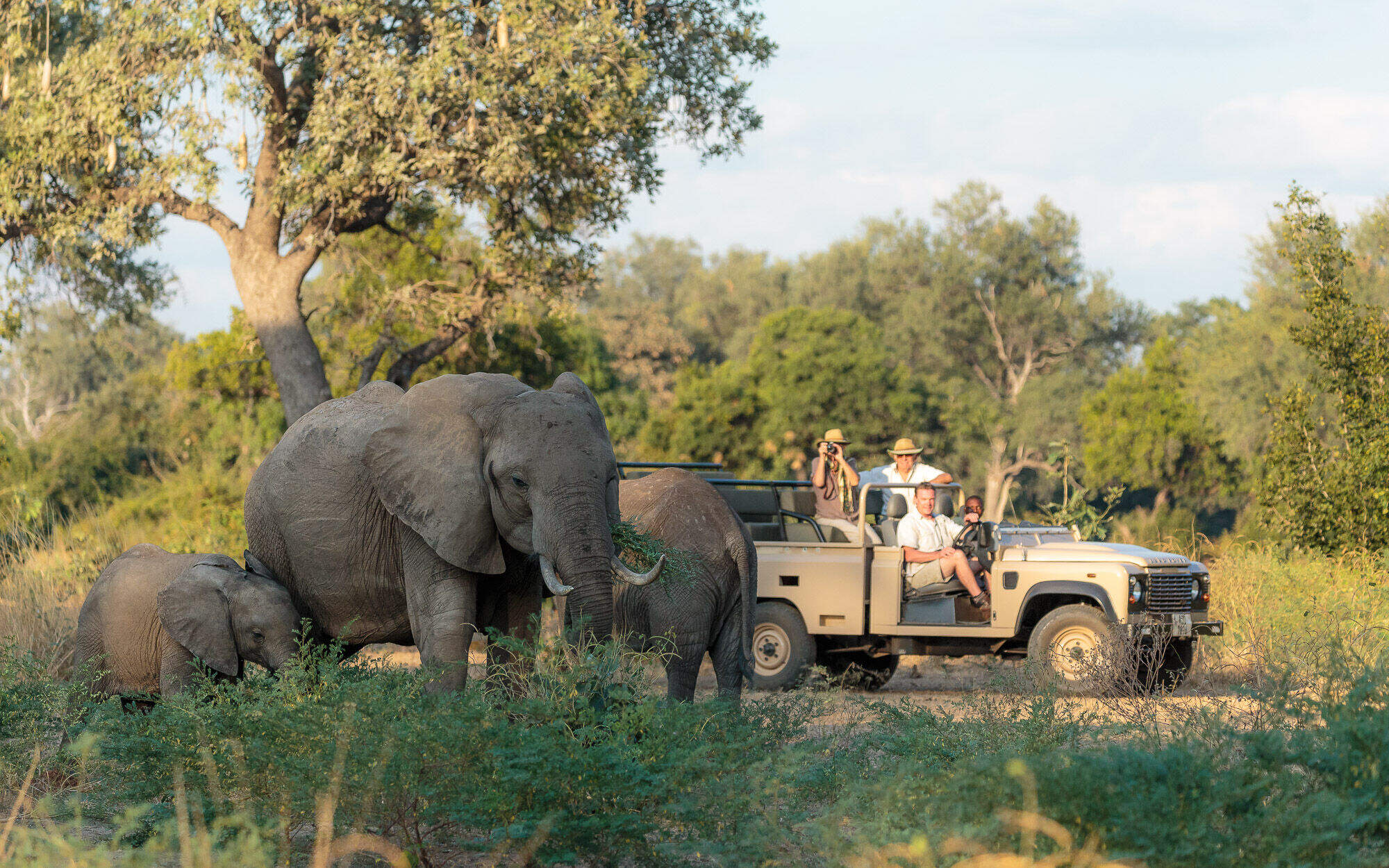
Nkonzi Camp
A simple and rustic bush camp, Nkonzi has a strong focus on walking safaris in this remote section of Zambia’s South Luangwa National Park.
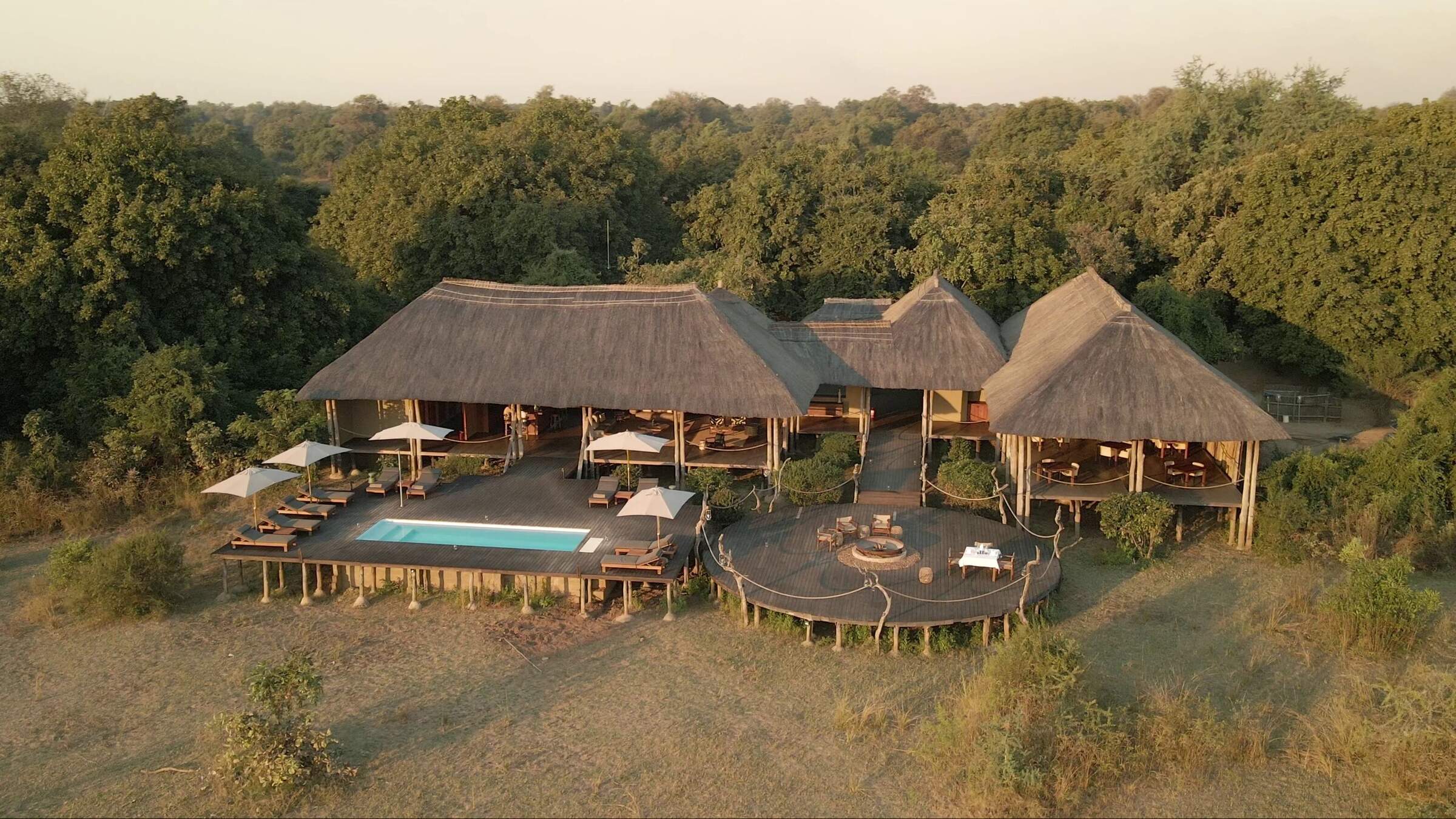
Chikunto
Chikunto Safari Lodge is a more traditional property in the South Luangwa National Park, sitting on a peninsula of land created by the meandering Luangwa River.
When to go to South Luangwa National Park
Our month by month guide: What it's like to visit Island Bush Camp in South Luangwa National Park
Jan
Feb
Mar
Apr
May
Jun
Jul
Aug
Sep
Oct
Nov
Dec
South Luangwa National Park in January
January marks the height of the wet season in South Luangwa. Expect frequent downpours, often lasting a few hours, with intermittent sunny periods. The mercury regularly climbs above 30°C, accompanied by high humidity. The park's landscape is verdant and lush, with crystal-clear air.
However, the abundance of water causes most larger animals to disperse, and the thick vegetation can hinder game viewing. Walking safaris are largely impractical during this time. Migratory birds, many in breeding plumage, boost the area's avian diversity. Most lodges close and the few that remain open offer their lowest rates. Only the central network of all-weather roads is reliably passable for 4WD safaris. Low numbers of visitors ensuring a tranquil park experience for those who do visit.
- Wet season peak, frequent showers
- Most lodges and all bush-camps are closed
- Lush vegetation, ideal for photography
- Large wildlife is scattered, can be challenging to spot
- Few tourists, budget-friendly rates
Our view
This is not a great time to visit
Weather in January
South Luangwa National Park in February
February continues the ‘green season’ trend in South Luangwa National Park, with impressive thunderstorms delivering short bursts of rain most days, punctuated by clear skies. The park remains awash with water, affecting wildlife distribution and lodge operations.
Dense vegetation limits game viewing opportunities on safari and walking safaris aren’t usually possible. However, the swollen Luangwa River allows for unique boating experiences unavailable during drier months. Despite challenging conditions, patient visitors may be rewarded with sightings of animals caring for their young. The handful of operational lodges maintain low rates, and the park sees few visitors during this period.
- Continued wet season, regular downpours
- All bush-camps and most lodges are closed
- Verdant scenery, photogenic landscapes
- Game viewing challenging due to thick foliage
- Low visitor numbers, economical pricing
Our view
This is not a great time to visit
Weather in February
South Luangwa National Park in March
March signals the tail end of South Luangwa's rainy season, with heavy showers still frequent. Water levels peak, so driving off the park’s all-weather road network remains challenging. Daytime temperatures consistently exceed 30°C, with rain-induced humidity remaining high.
Most lodges are still closed, and thick vegetation continues to impact game viewing and walking safaris. However, this period can offer exceptional sightings of animals with their offspring, and predator activity often increases. Wild dogs have historically been particularly active in the park during this time. The combination of clear air and increasingly blue skies provides excellent photographic opportunities. Birdwatching remains superb as migratory species prepare for their winter journey.
- Wet season persists, intermittent rain
- Many lodges remain closed
- Abundant greenery, picturesque settings
- Young animals plentiful, but hard to see
- Minimal crowds, cost-effective travel
Our view
This is not a great time to visit
Weather in March
South Luangwa National Park in April
April represents a transitional period in South Luangwa National Park as the rains shift from intense downpours to lighter, less frequent showers. The park's scenery remains incredibly green and vibrant, though larger wildlife can be harder to spot on safaris.
Some lodges begin to reopen while seasonal bushcamps remain closed as they prepare for the upcoming dry season. The Luangwa River reaches often its highest level in April, creating a spectacular sight. Despite the challenges, this period can offer unique experiences for those willing to brave the unpredictable conditions – and accept a greatly reduced choice of places to stay.
- Wet season waning, occasional showers
- Some lodges begin reopening
- Landscape still lush, great for photographers
- Wildlife viewing slowly improving
- Few visitors, attractive off-season rates
Our view
This is not a great time to visit
Weather in April
South Luangwa National Park in May
May is a lovely month; it typically heralds the start of the dry season in South Luangwa. While occasional showers may occur, most days are clear and sunny. As winter approaches, temperatures begin to drop, with daytime highs around 26°C.
The drying landscape improves access within the park, and most lodges reopen. Some standing water remains, but game viewing noticeably improves as the vegetation thins out. The clear air continues to benefit photographers. Late May is very popular among the Luangwa’s ‘safari regulars’ who seek to capitalise on good weather, improved wildlife sightings, newly-opened camps (including some seasonal bush-camps) and the final weeks of low-season rates at many lodges.
- Dry season onset, clearer skies
- Most lodges and some bush-camps operational
- Vegetation still green, crisp air
- Game viewing conditions improving
- Last month for lower accommodation prices
Our view
A good time to visit, with pros & cons
Weather in May
South Luangwa National Park in June
June in South Luangwa National Park is characterised by virtually rainless days and abundant sunshine. Humidity levels plummet, and winter's approach brings cooler temperatures, with nighttime lows around 10°C and daytime highs of 25°C.
The landscape remains lush, but the thinning vegetation significantly enhances visibility for game viewing, the conditions are ideal for walking safaris. All the lodges and bushcamps in the park are operational by early June. While some offer shoulder season rates, others are already running with high-season pricing. Wildlife begins to concentrate around water sources, setting the stage for excellent game viewing in the coming months.
- Consistently sunny, cooler nights
- All South Luangwa lodges open
- Wildlife sightings becoming more frequent
- Ideal conditions for walking safaris
- Viewing of the Victoria Falls at its best
Our view
A very good time to visit
Weather in June
South Luangwa National Park in July
As the dry season progresses in South Luangwa, July sees vegetation and grasses dying back, with water becoming increasingly scarce. Wildlife congregates around remaining water sources, most notably along the Luangwa River, leading to excellent game viewing opportunities.
July marks the heart of winter, with daytime temperatures in the 20s Celsius, whilst nighttime lows can drop to single digits. Early morning and late evening game drives can be particularly chilly, with lodges often providing blankets and hot water bottles. Bring your hats, coats and gloves! Visitor numbers rise significantly, and space at popular small camps can become limited. Nearly all properties now charge their highest rates.
- Warm days, chilly evenings
- Game viewing notably improved
- Excellent visibility for walking safaris
- High season prices for most camps and lodges
- Comfortable daytime temperatures
Our view
A very good time to visit
Weather in July
South Luangwa National Park in August
August in the national park offers some of the year's best game viewing opportunities. South Luangwa’s vegetation has largely died back, and wildlife clusters around remaining water sources.
Rain is extremely unlikely, with sunny days largely guaranteed, though a haze may sometimes appear on the horizon due to dust and smoke in the air. Nighttime temperatures can dip below 5°C, but daytime highs reach the 20s Celsius. Warm clothing is essential for morning and evening drives. This is one of the most popular months to visit the park for a safari, with lodges and camps charging peak rates and often booking up far in advance.
- Very dry warm days and cold nights
- Prime wildlife viewing near water sources
- Perfect weather for walking safaris
- Peak season means highest prices
- Some haze may affect photography
Our view
Fantastic: the very best time to visit
Weather in August
South Luangwa National Park in September
September is arguably the very best time to visit South Luangwa National Park. It probably hasn’t rained for many months, humidity is low, and temperatures are just beginning to climb.
Mornings are more comfortable for 4WD safaris, rising to daytime typical highs in the low 30s Celsius. Water scarcity forces the wildlife to congregate around remaining sources, particularly around the Luangwa River, where most of the camps and lodges are situated. There high game densities lead to increased chances of inter-species interactions. It’s peak season for lodges and camps charge which are often fully booked. A little haze may affect long-distance views and photography. The Luangwa River's water levels continue to drop, concentrating hippos and crocodiles life in the remaining stretches.
- Dry and hot, clear skies
- Exceptional month for wildlife observation
- Landscape sometimes hazy due to dust and smoke
- Peak season, lodges often fully booked
- Higher prices for accommodation
Our view
Fantastic: the very best time to visit
Weather in September
South Luangwa National Park in October
October sees the dry season peak in South Luangwa at its most intense, with the landscape increasing parched. Occasional showers may occur as the promise of rain approaches. Temperatures can soar above 40°C during the day, rarely dropping below 20°C at night.
This heat can be draining, so walking safaris will set off early in the morning to beat the heat and sitting in an open 4WD on safaris can feel like facing a large hair-drier. Heat-haze and smoke may obscure the horizon as the Luangwa River becomes a series of pools, crowded with hippos and crocodiles. Other wildlife cautiously approaches these water sources, leading to thrilling predator-prey interactions. Game viewing is at its absolute best with the best chance of witnessing hunts.
- Optimal wildlife viewing conditions
- Very hot days and nights
- Dusty, hazy atmosphere is challenging for photos
- Some lodges start lowering their rates
- Less crowded than previous months
Our view
A very good time to visit
Weather in October
South Luangwa National Park in November
November typically witnesses the end of the dry season in South Luangwa. While the onset of rains is unpredictable, temperatures remain consistently high and humidity builds as the wet season approaches.
Early November may still be dry, but spectacular thunderstorms usually arrive, often later in the month, triggering rapid green growth when they do come – and an explosion of life from insects and smaller animals. Everything seems to come to life! When pools of water becomes more readily available away from the Luangwa River the wildlife quickly disperses. Some camps and all the seasonal bush-camps camps close; those that remain open reduce their rates. The rains quickly clear the air of dust and smoke, improving visibility and photographic conditions.
- Unpredictable month: depends on the rains
- Hot and humid – then the set season begins
- Wildlife dispersing as vegetation thickens
- Lower accommodation rates, fewer tourists
- Improved conditions for landscape photography
Our view
A good time to visit, with pros & cons
Weather in November
South Luangwa National Park in December
December usually marks the first full month of South Luangwa's wet season. Heavy thunderstorms become frequent, interspersed with sunny intervals. Daytime temperatures often exceed 30°C, accompanied by high humidity.
The rainfall transforms the landscape, encouraging lush vegetation growth. It’s a time renewal when insects, birds and smaller wildlife abound. While the larger species of wildlife remains in the park, wildlife viewing becomes more challenging due to the thick greenery and dispersed animal populations. Many lodges and all seasonal bush-camps are now closed as access to the park’s outlying areas becomes difficult. The few lodges that remain open offer lower rates and see few visitors. The rains clear the air, restoring vibrant blue skies and crystal-clear air which delights photographers.
- Rainy season in full swing
- Most lodges closed or offering low rates
- Wildlife harder to spot in thick vegetation
- Few visitors, budget-friendly period
- Lush green scenery, very photogenic landscapes
Our view
This is not a great time to visit
Weather in December

Looking for inspiration on where to travel next?
Visit our trip chooser to explore your options and find inspiration for your perfect African adventure
Inspire me